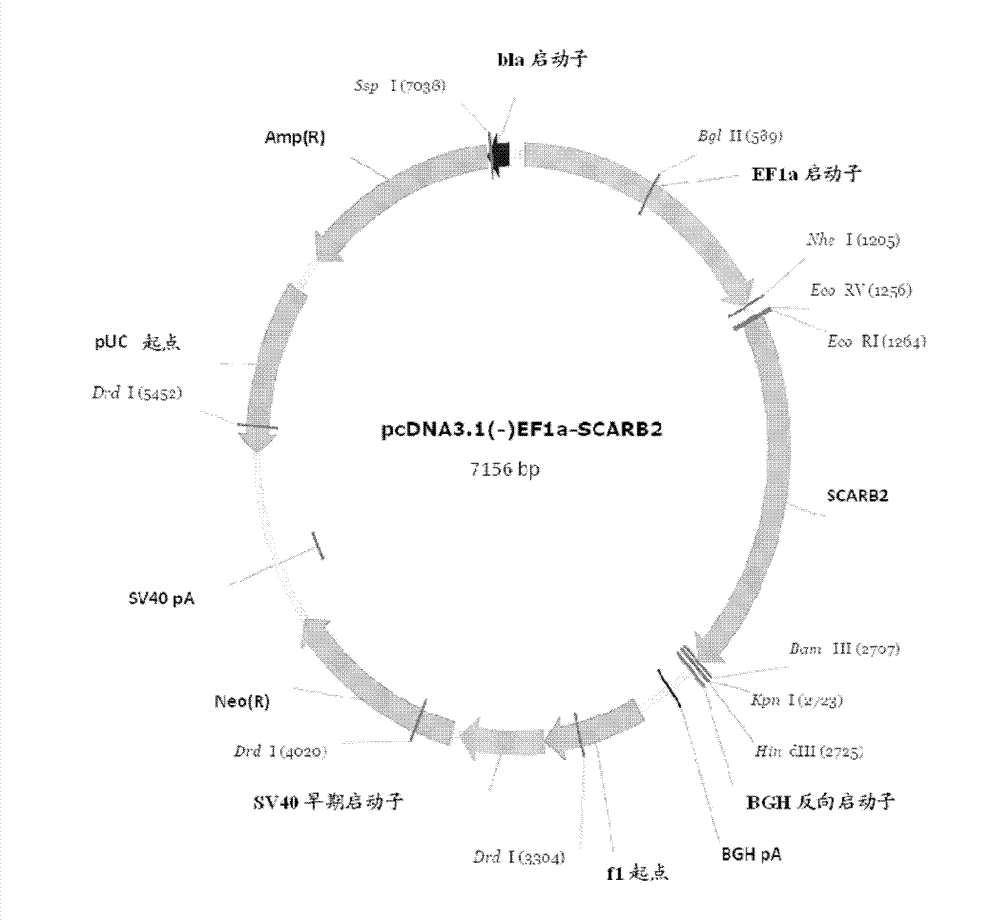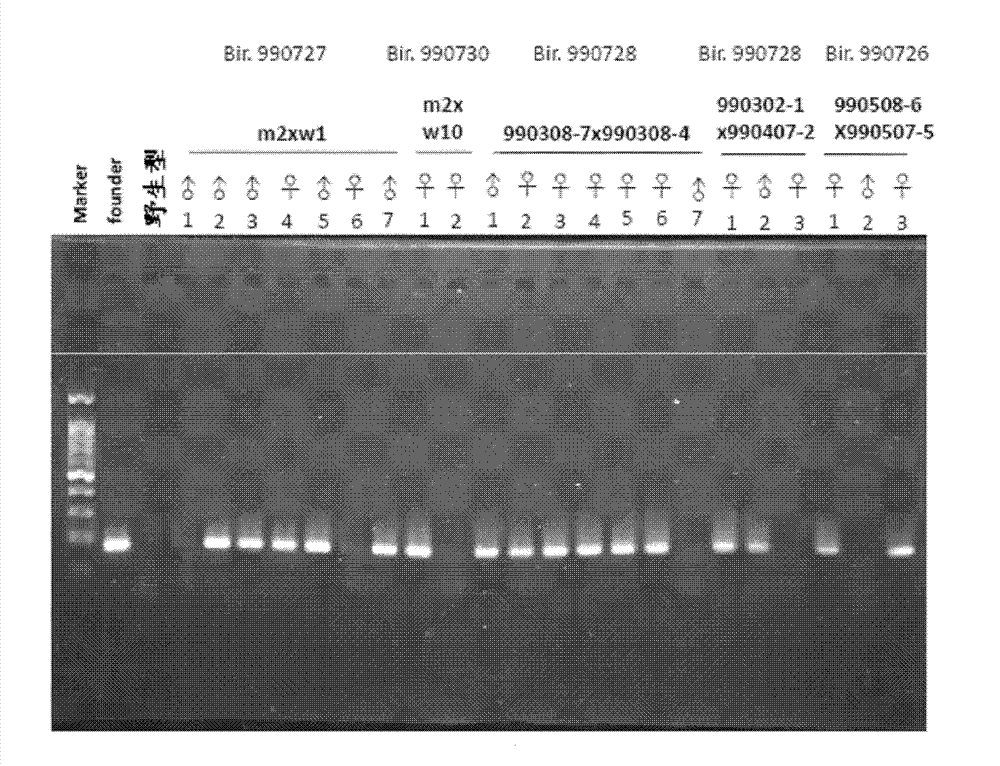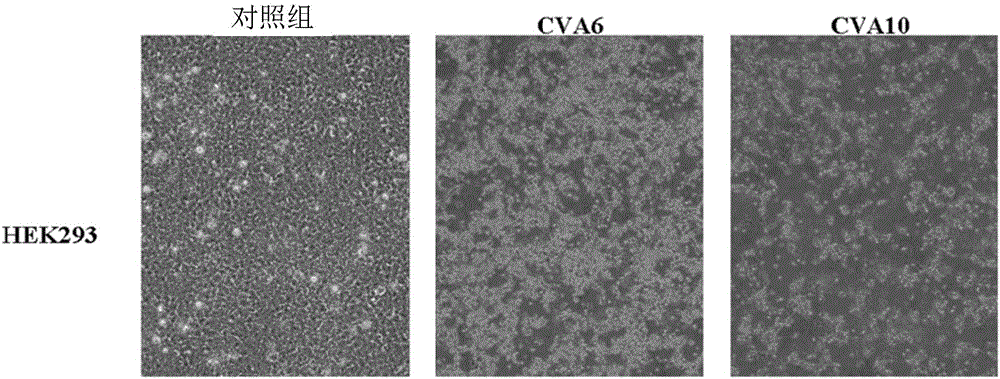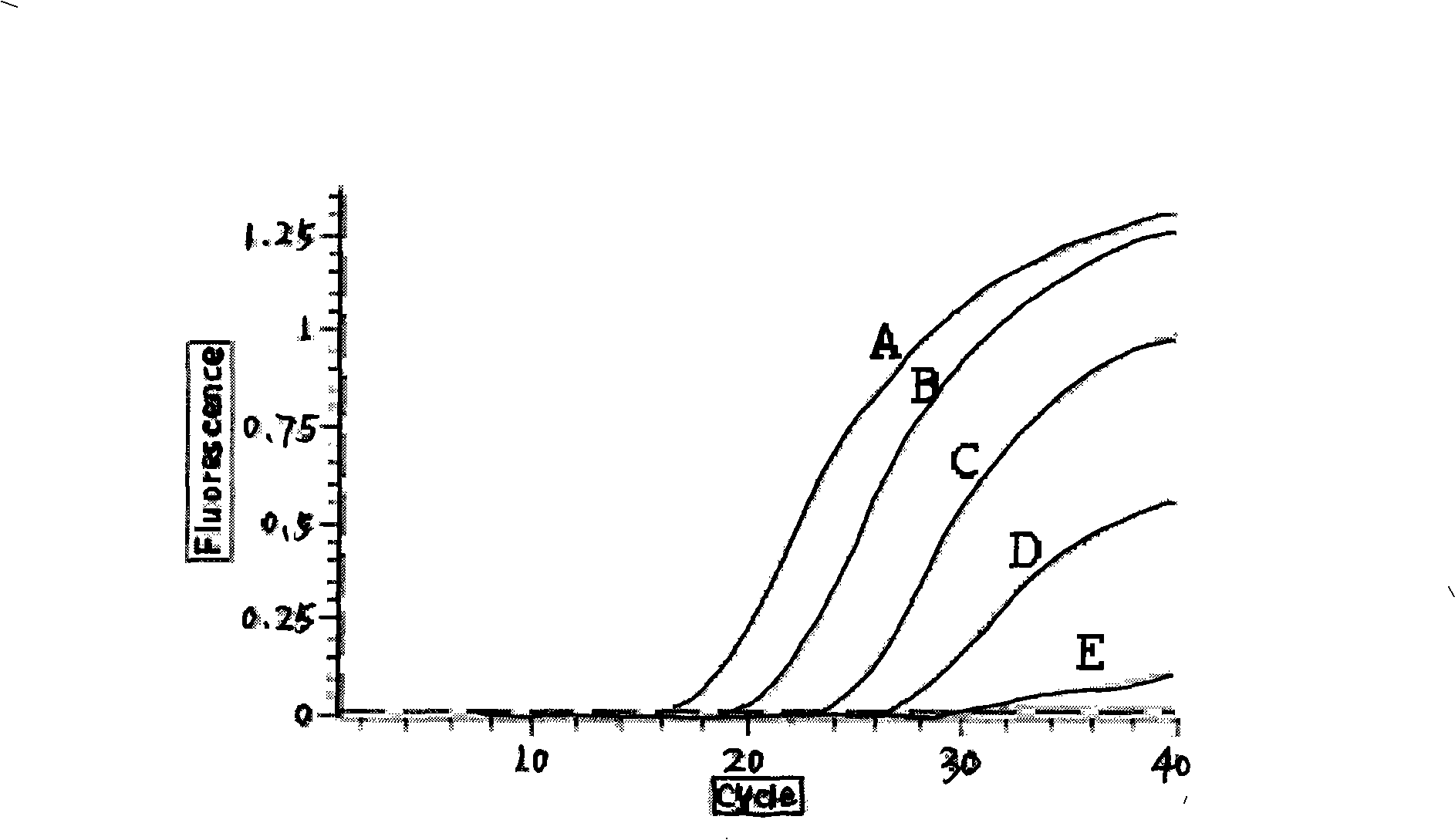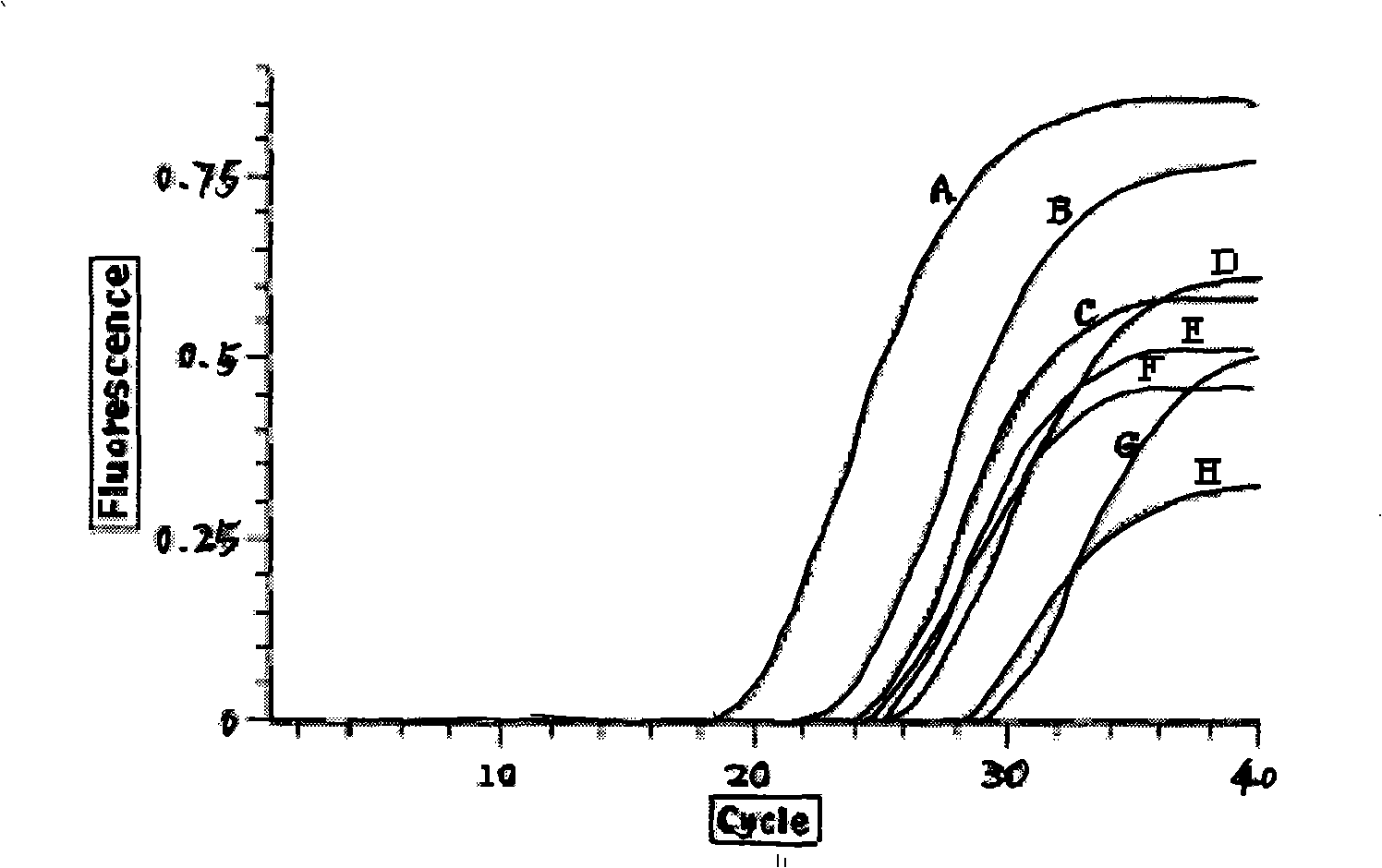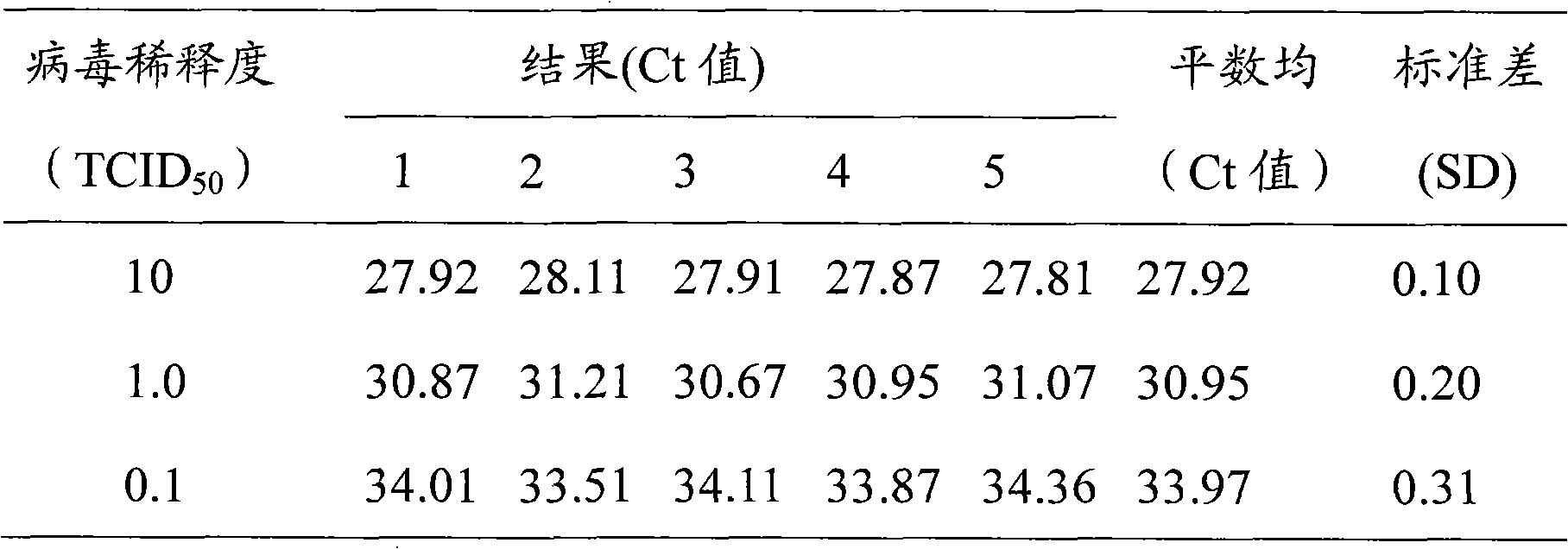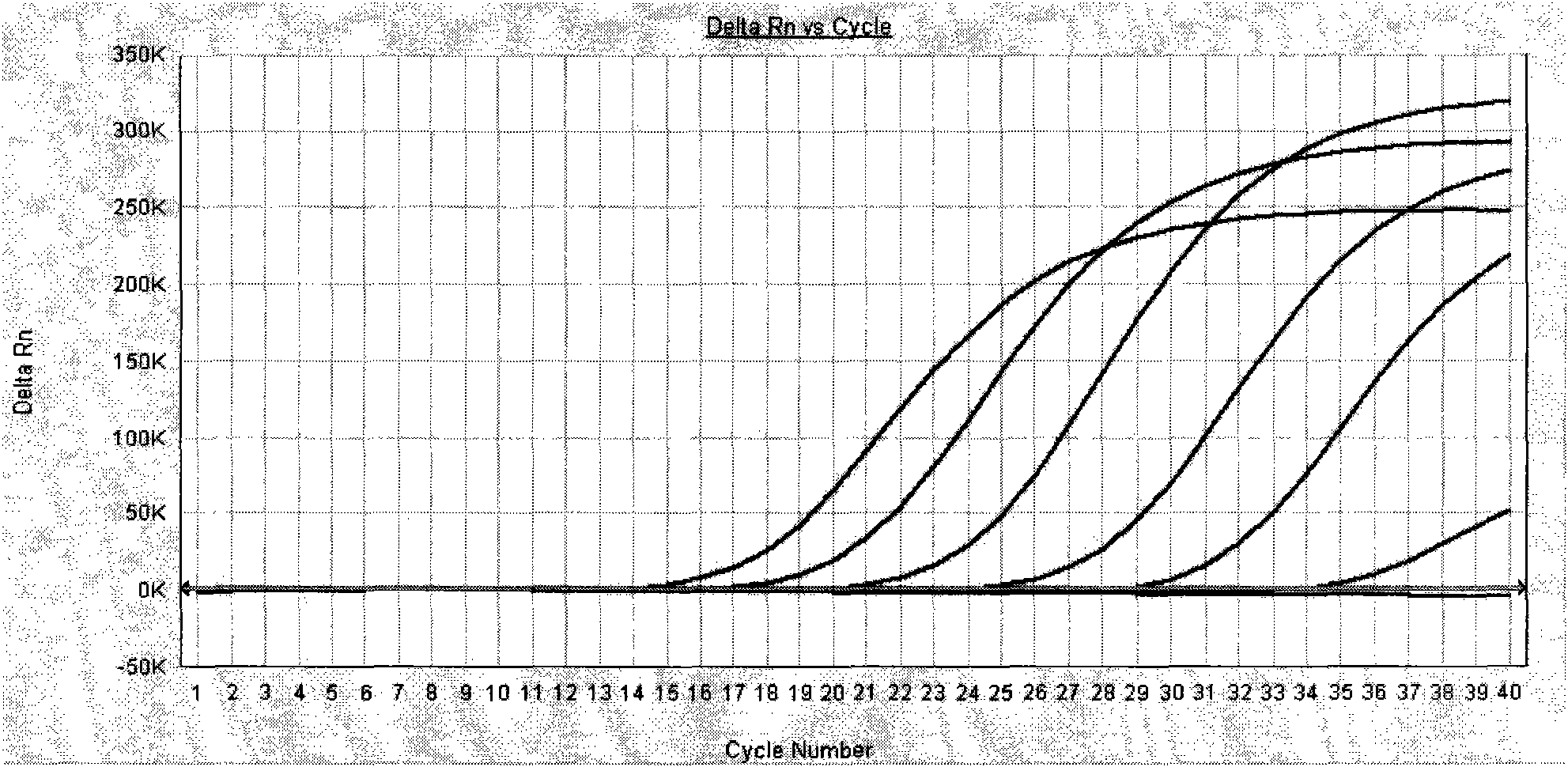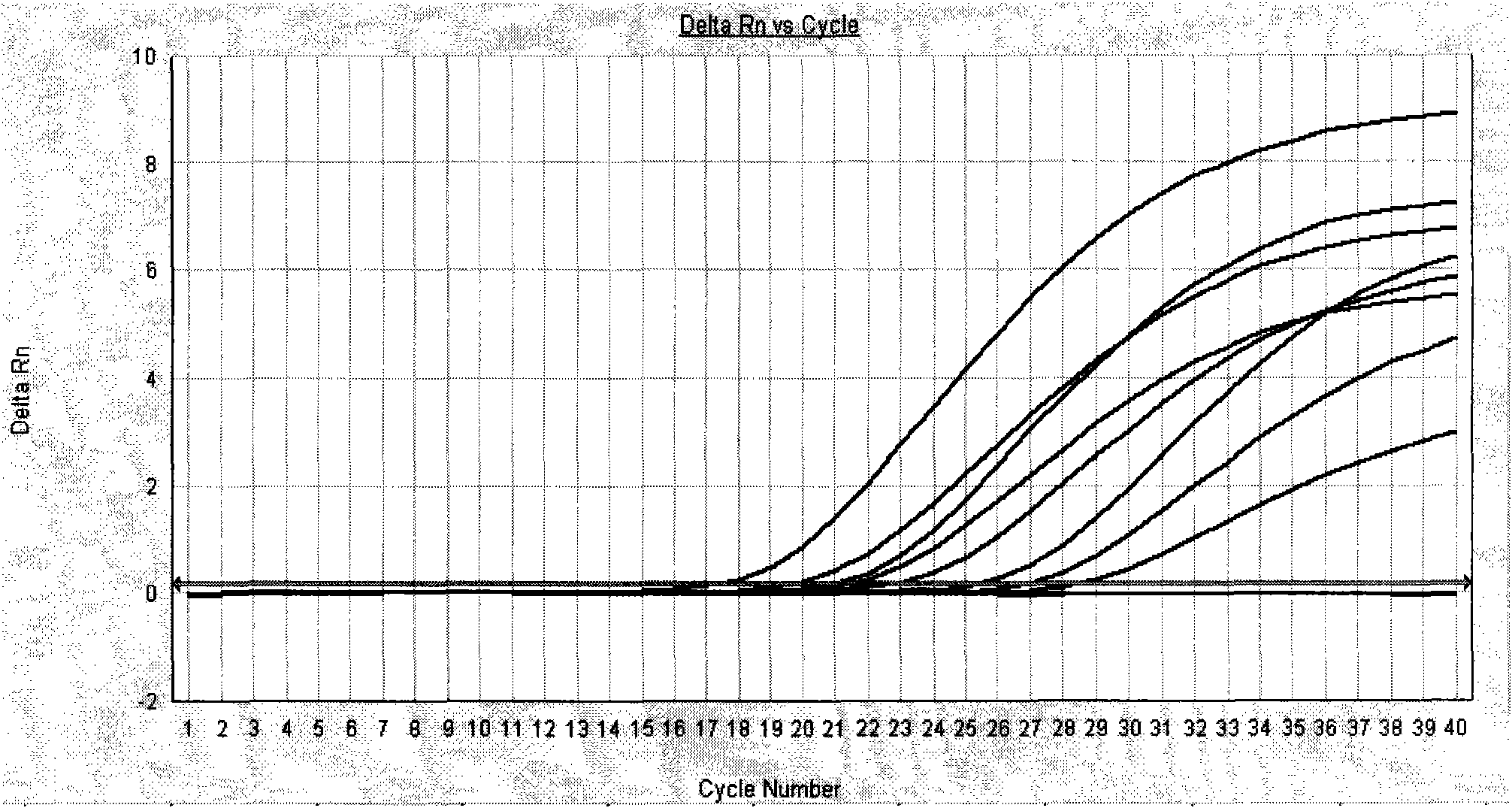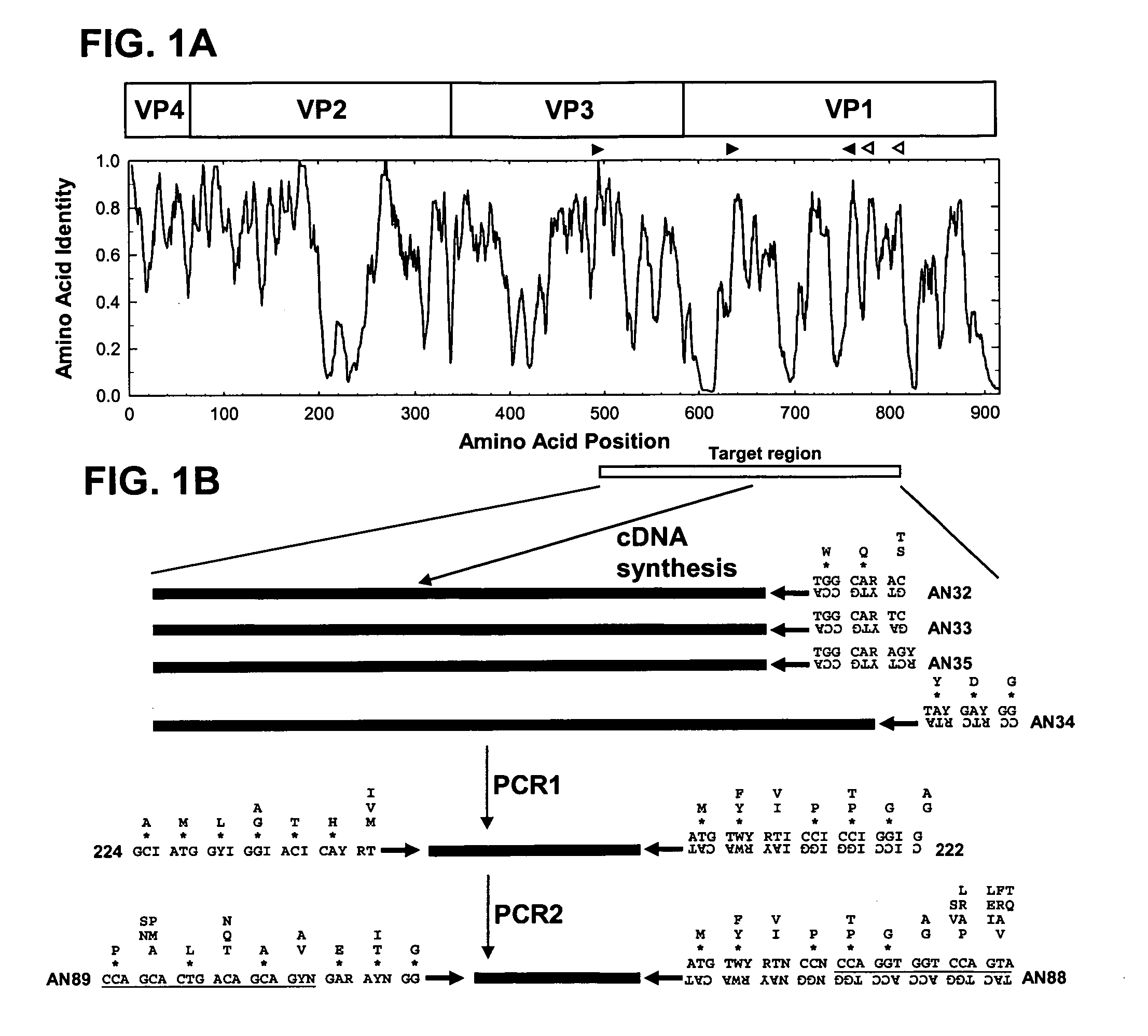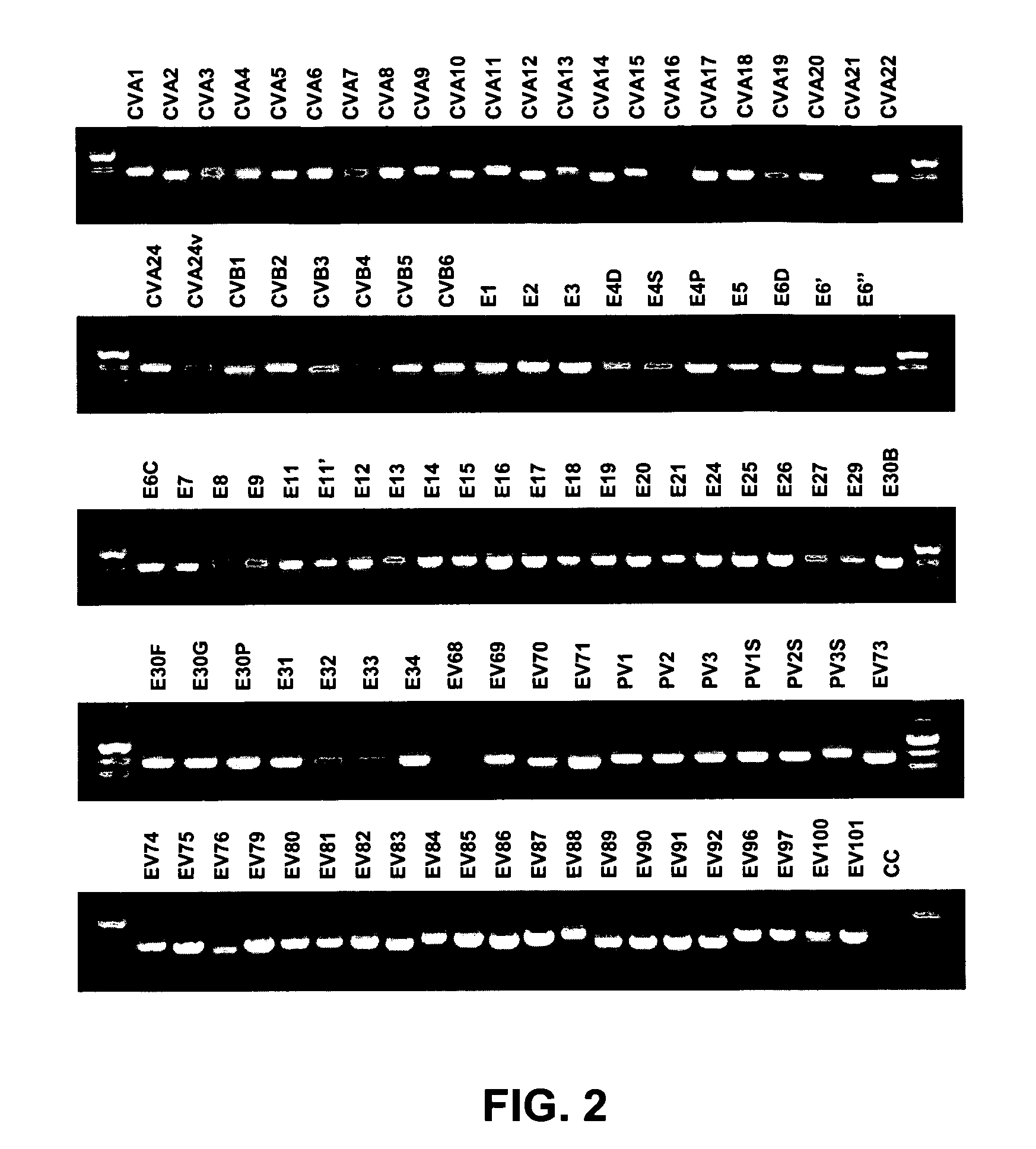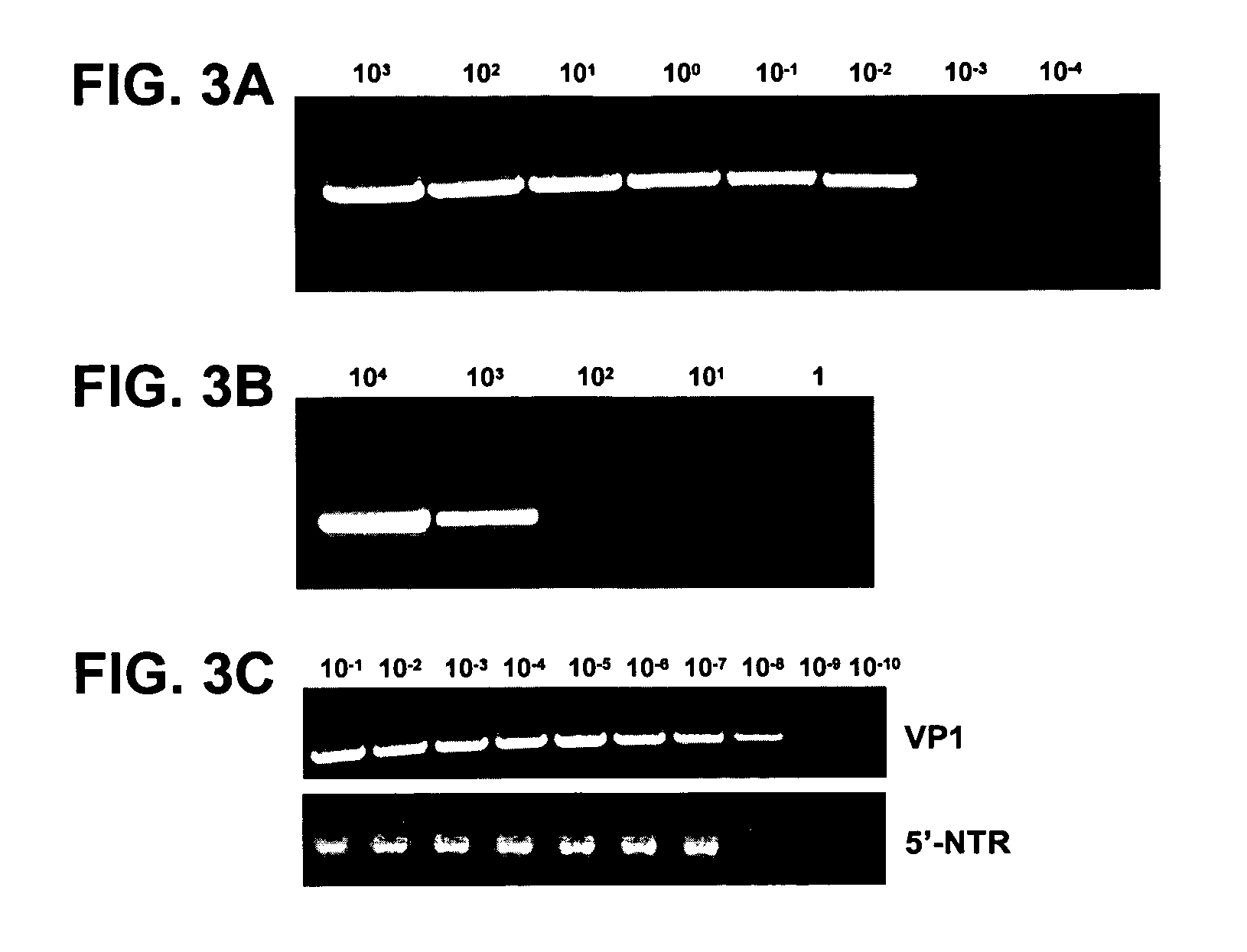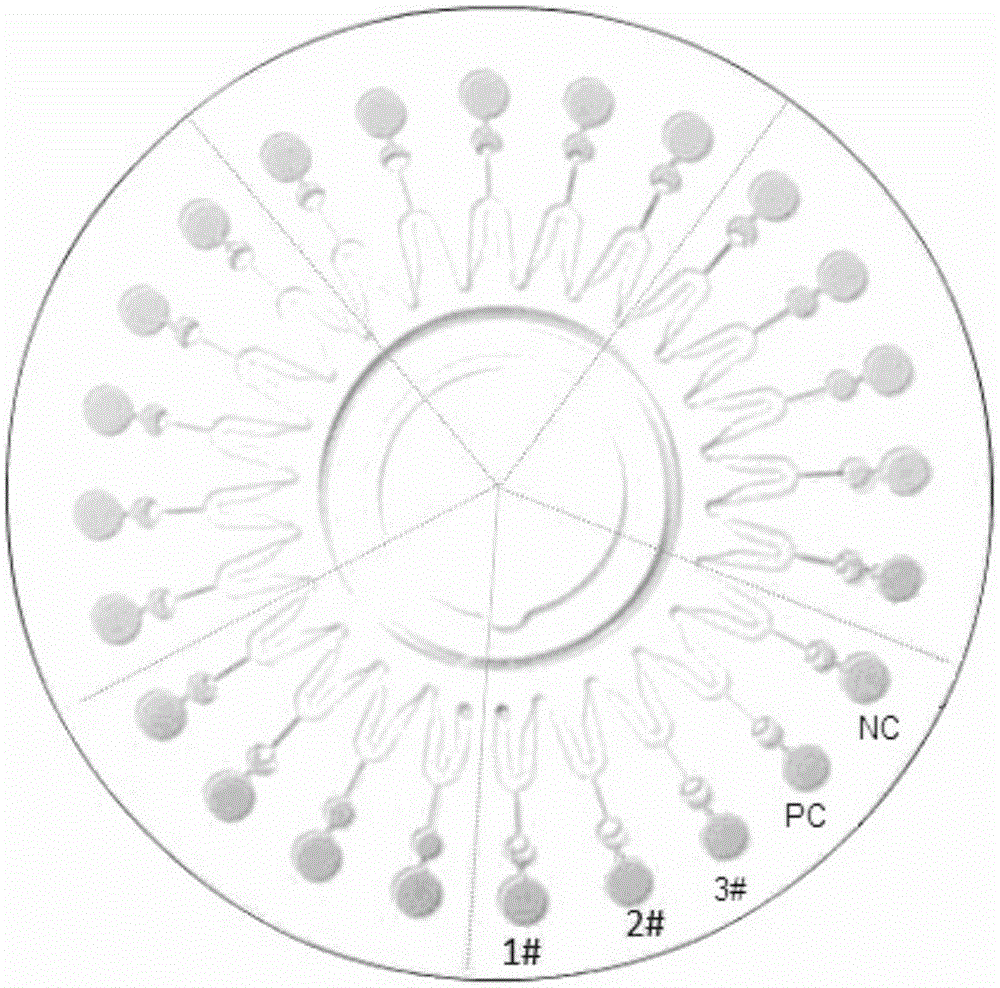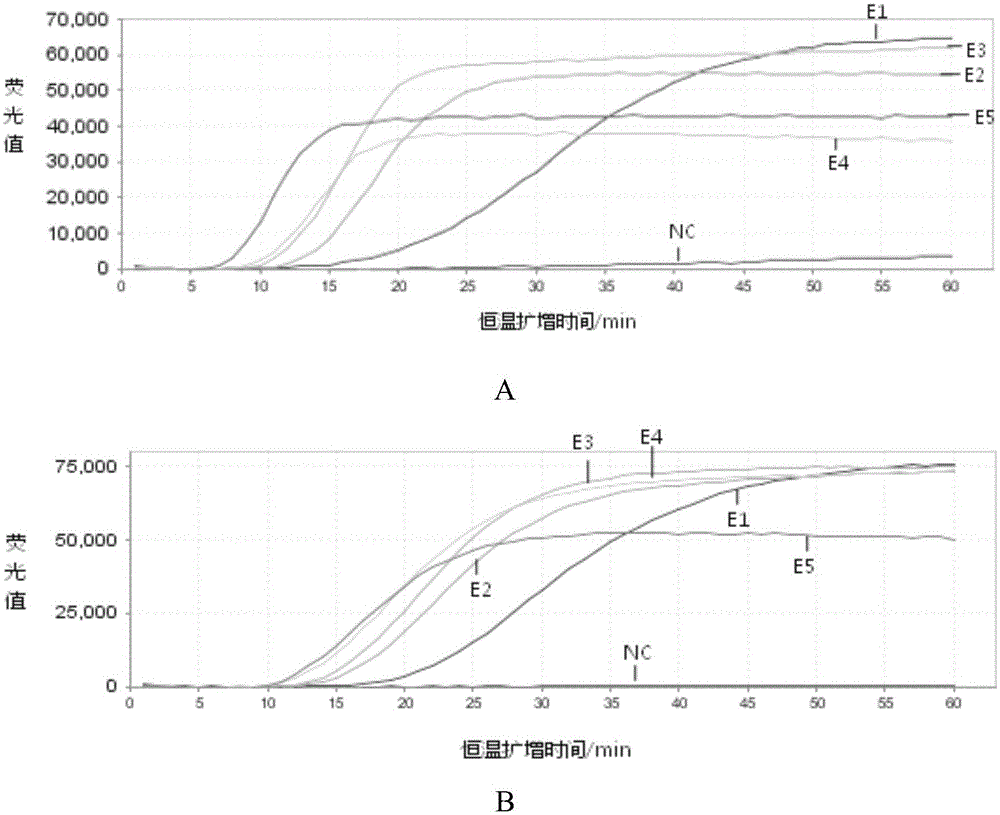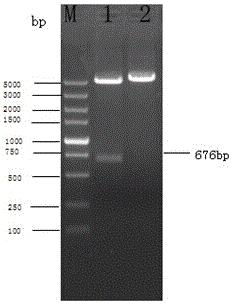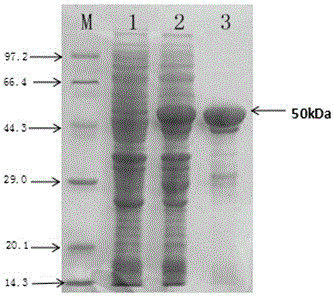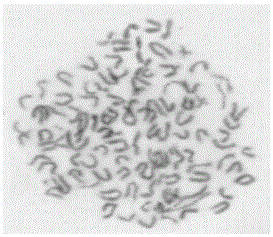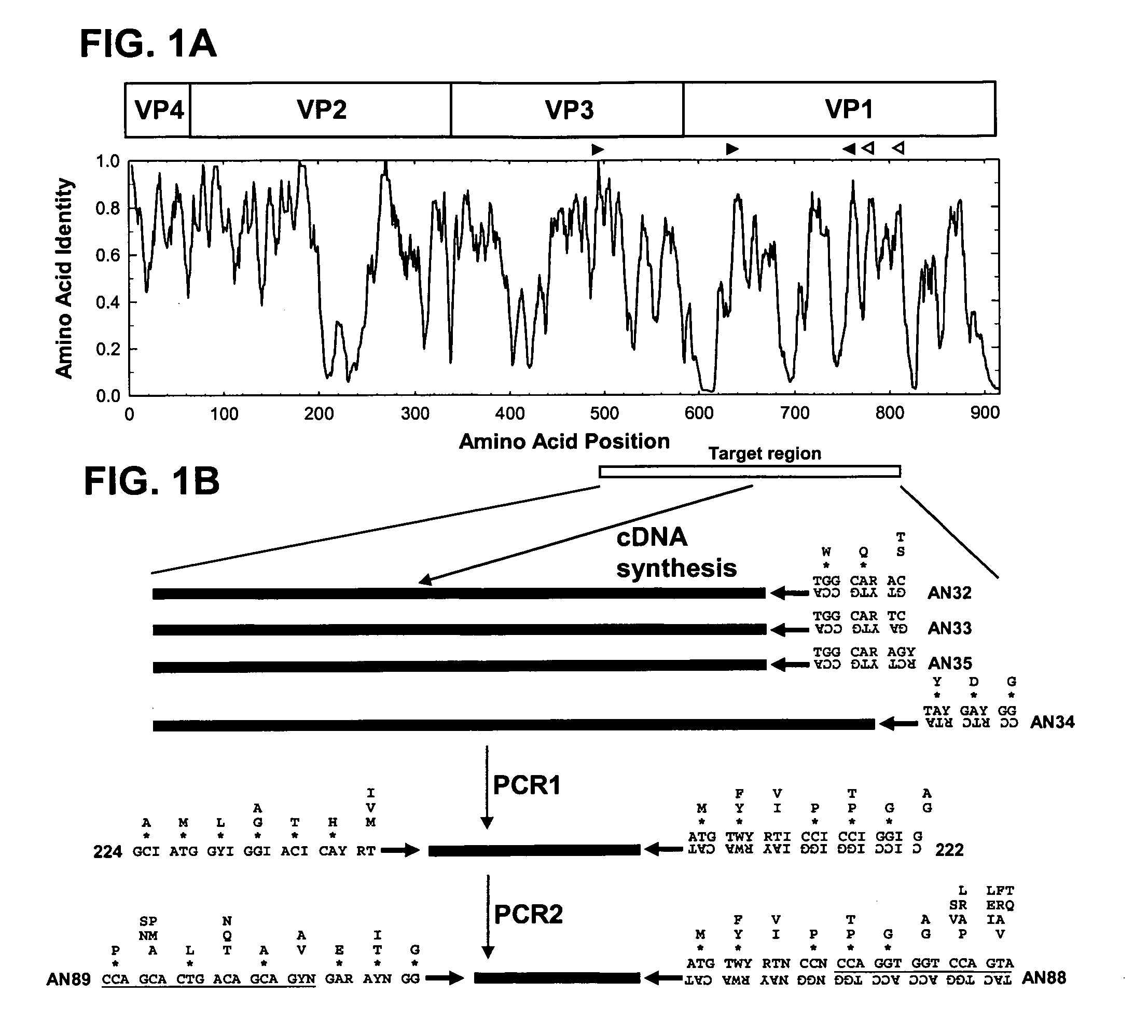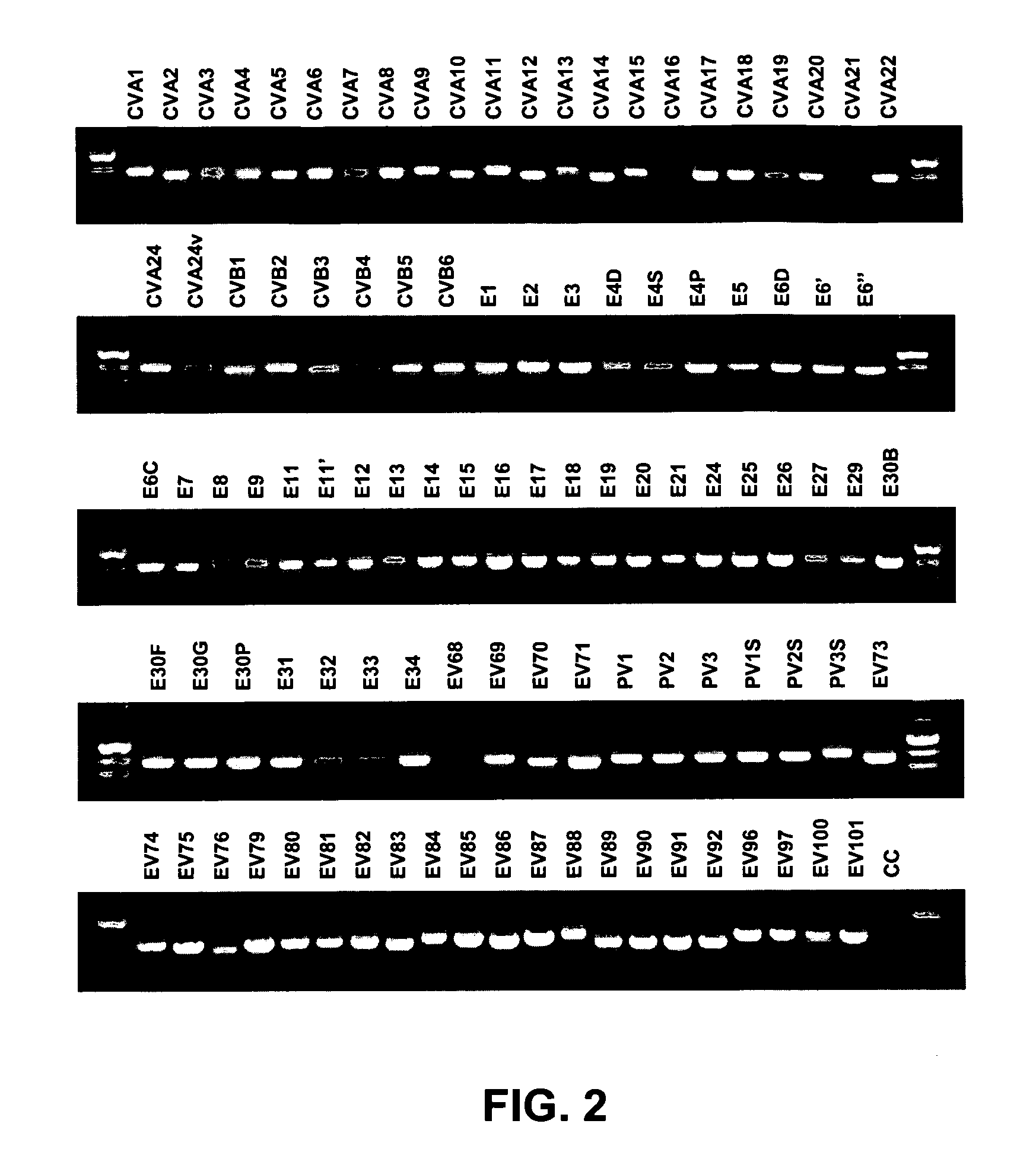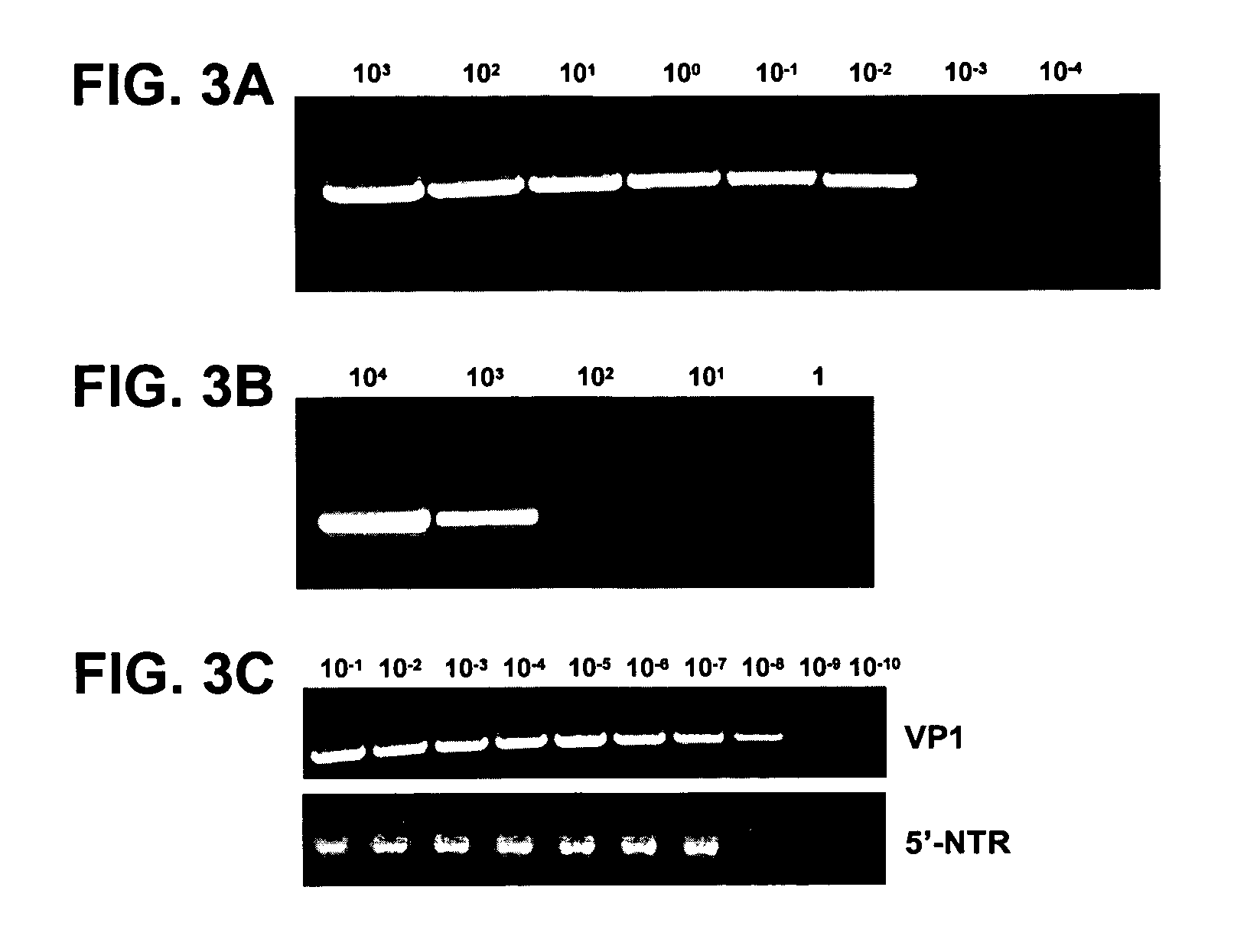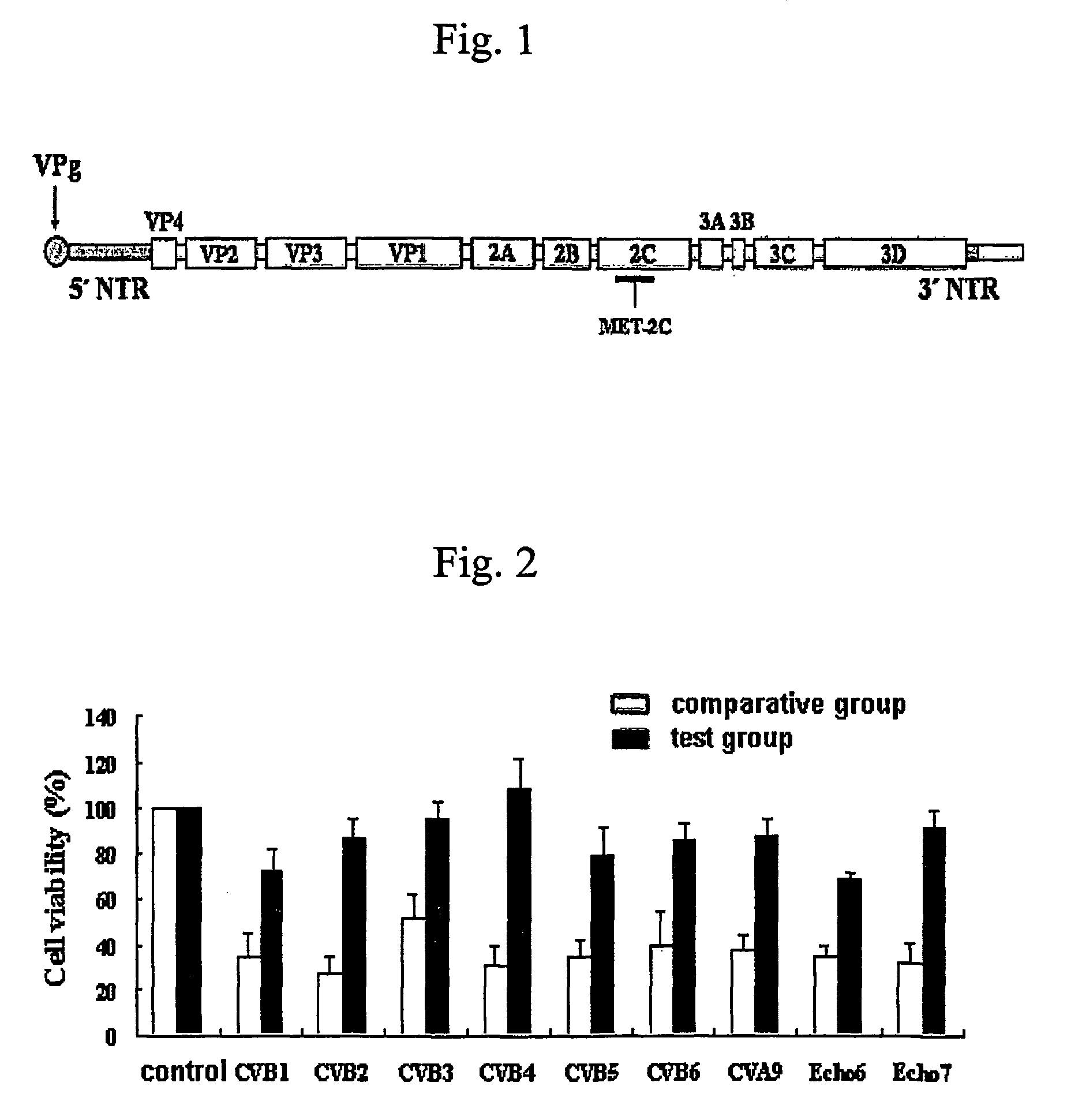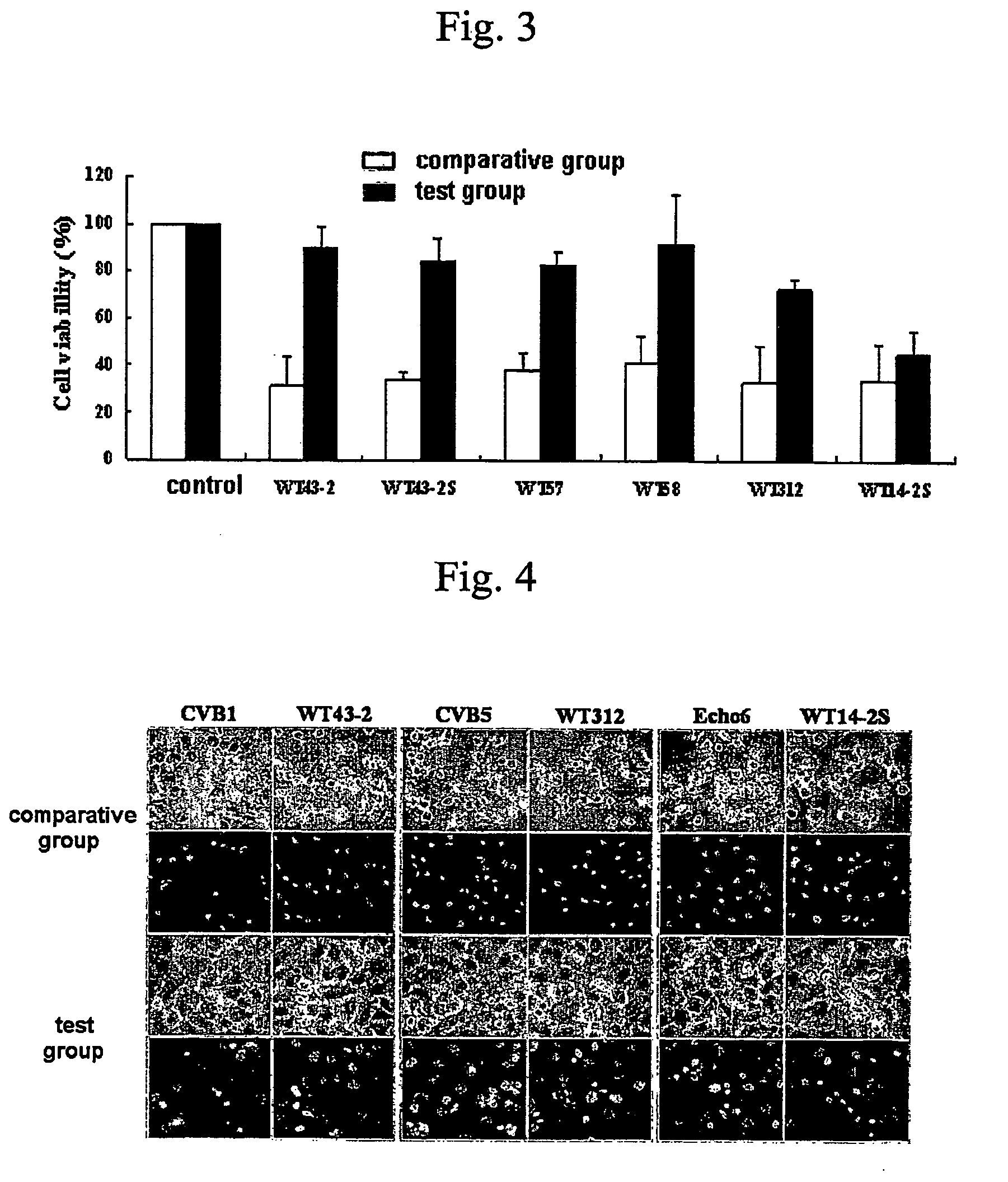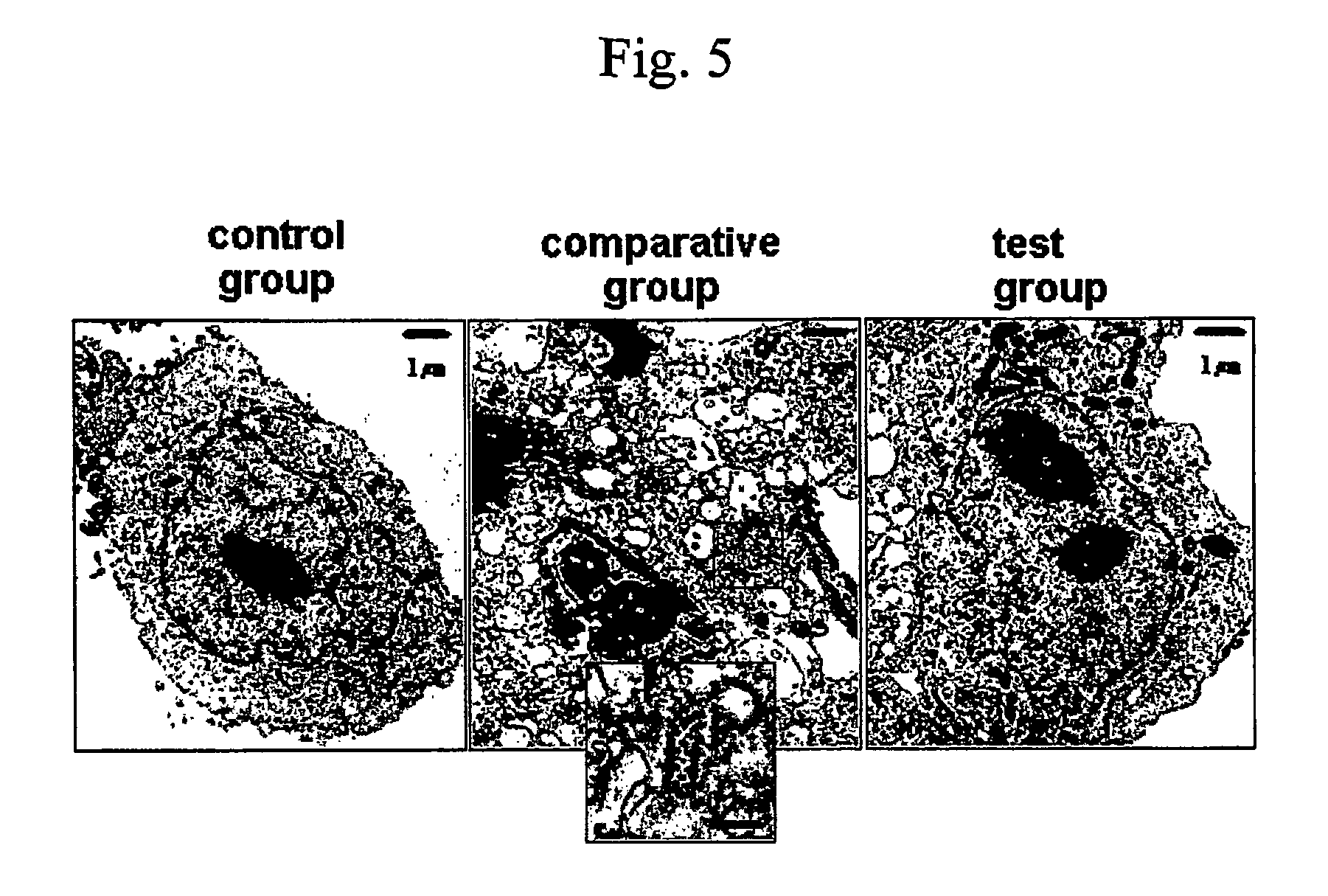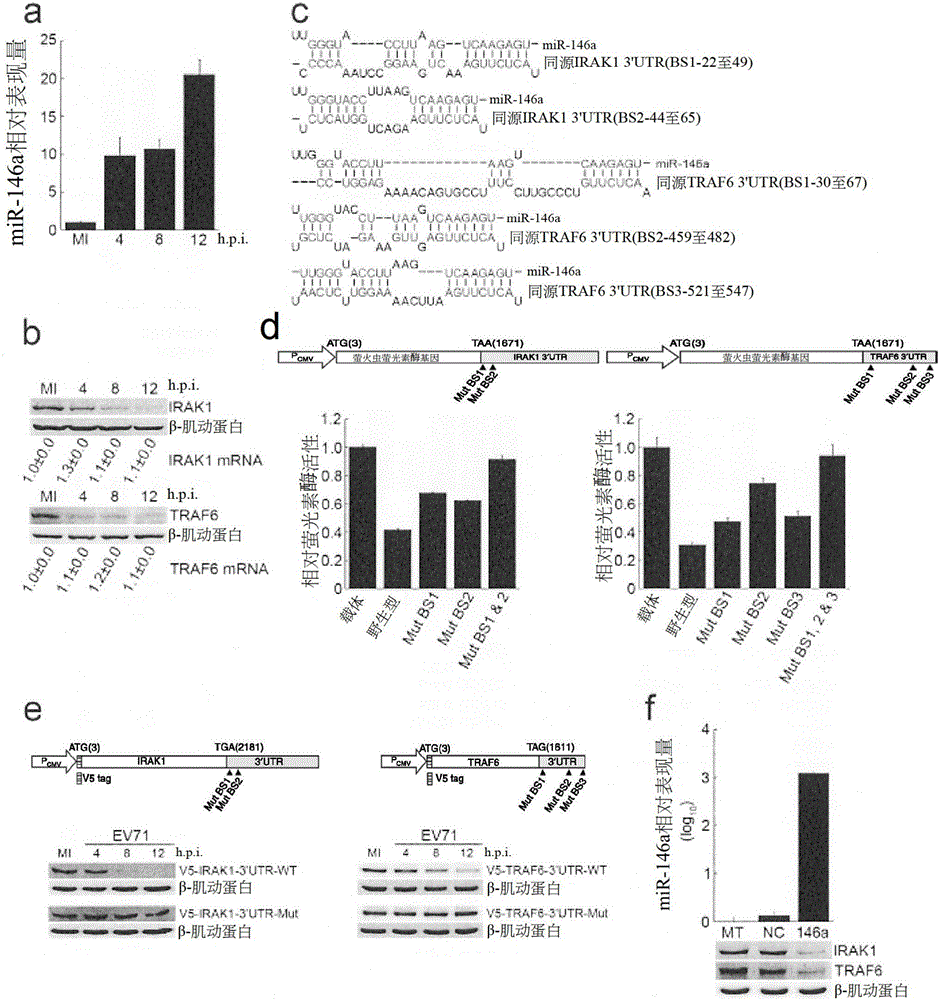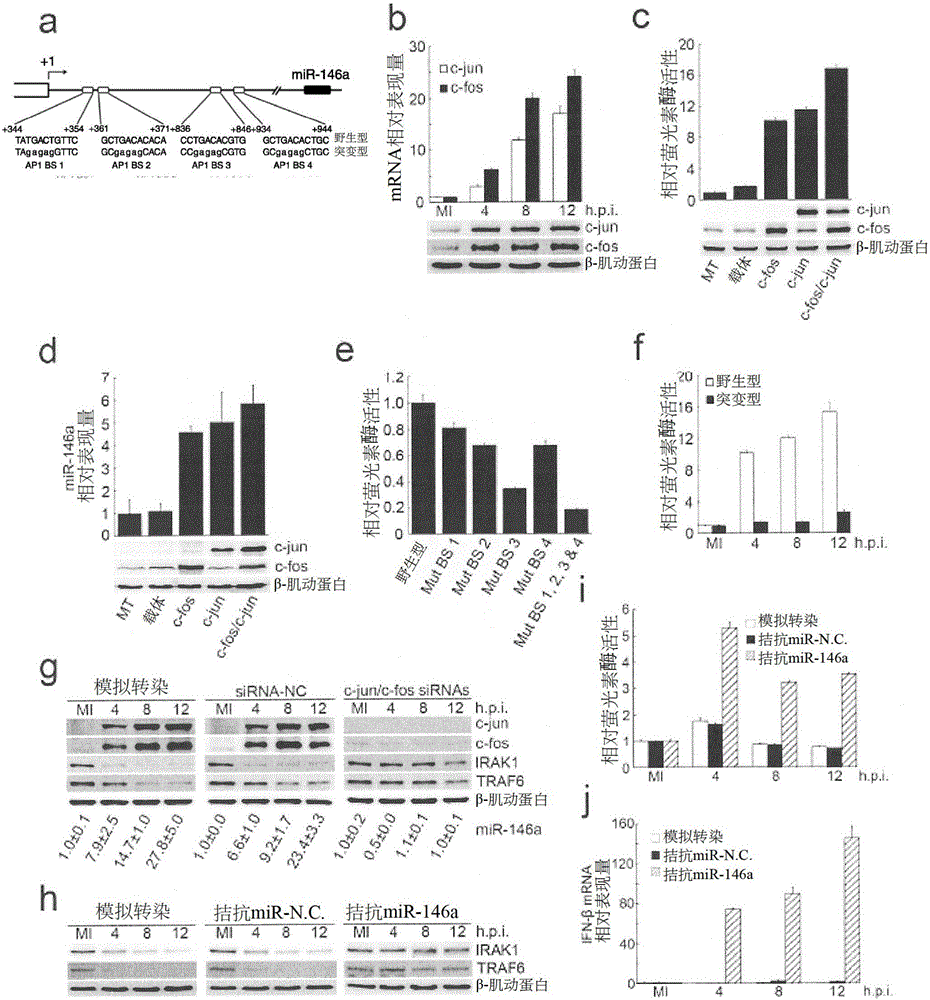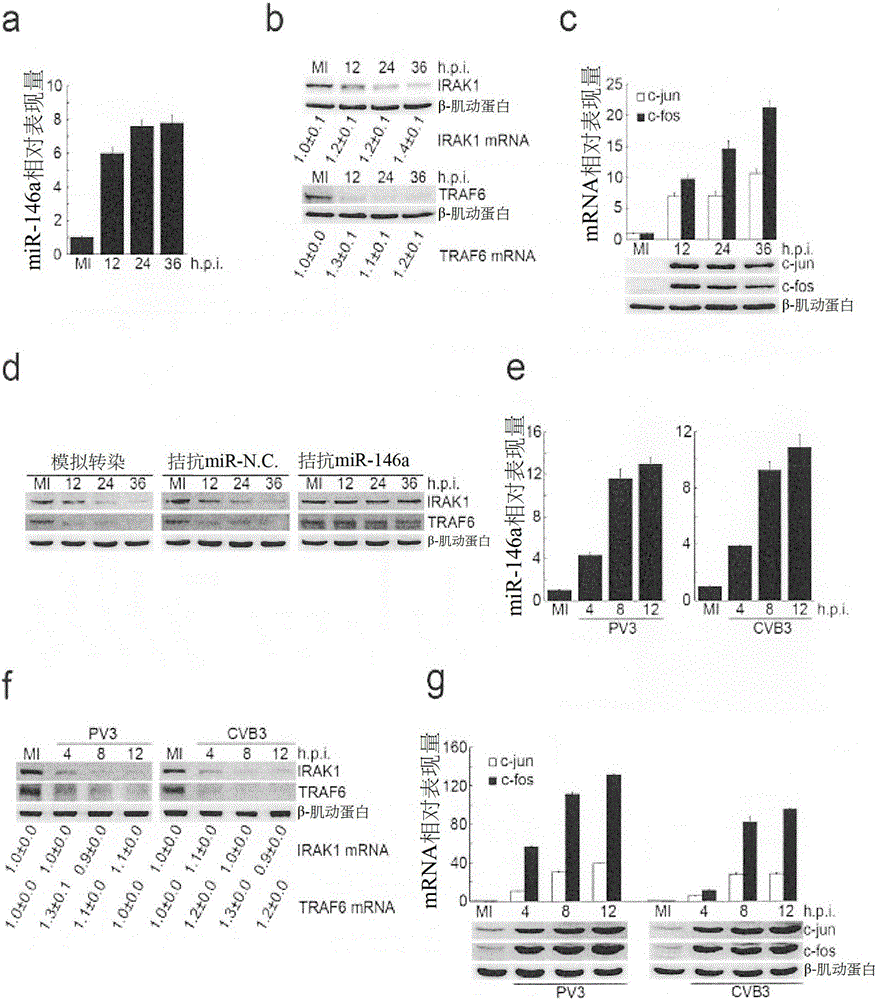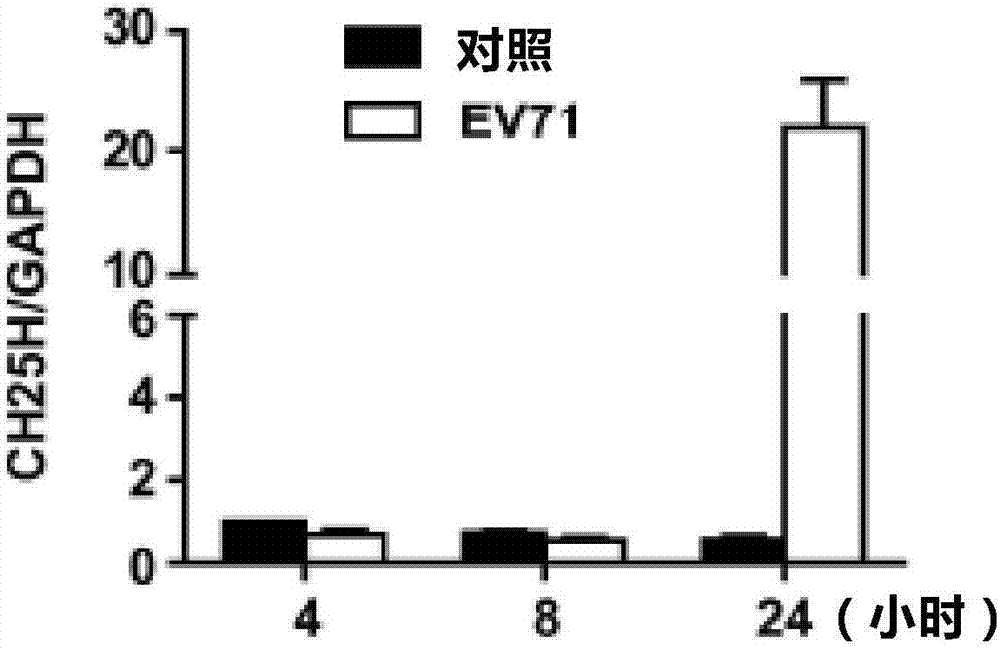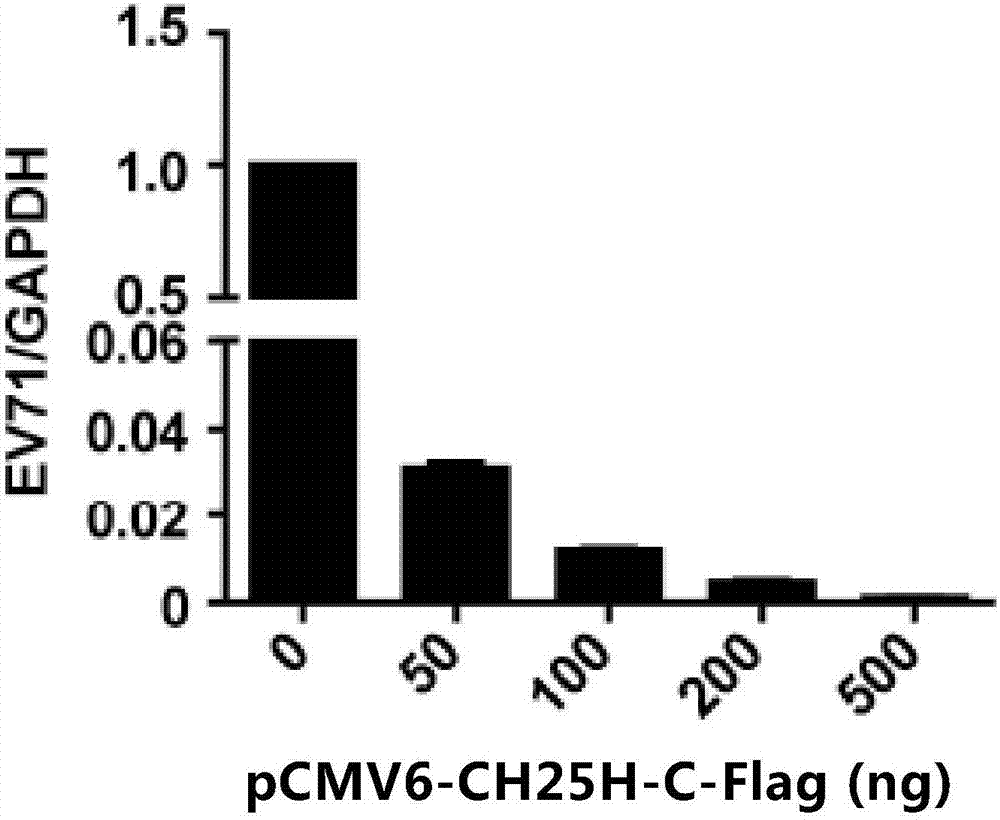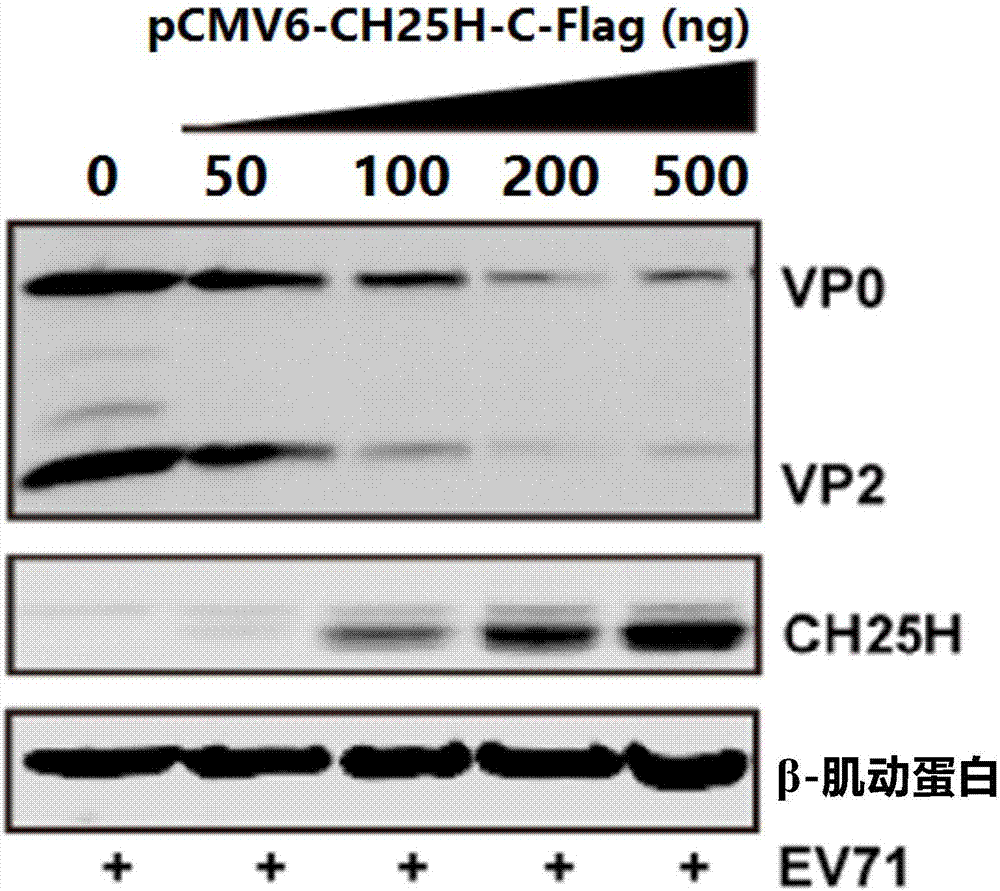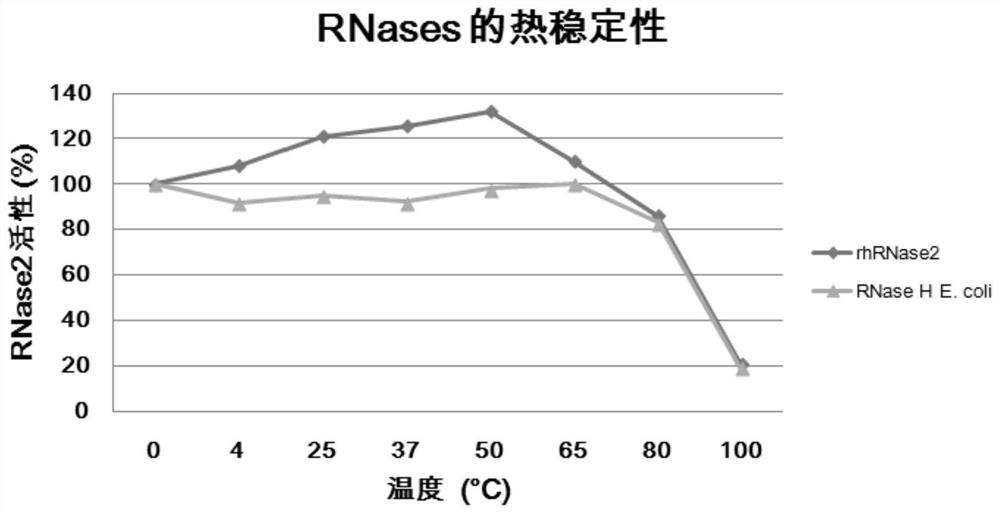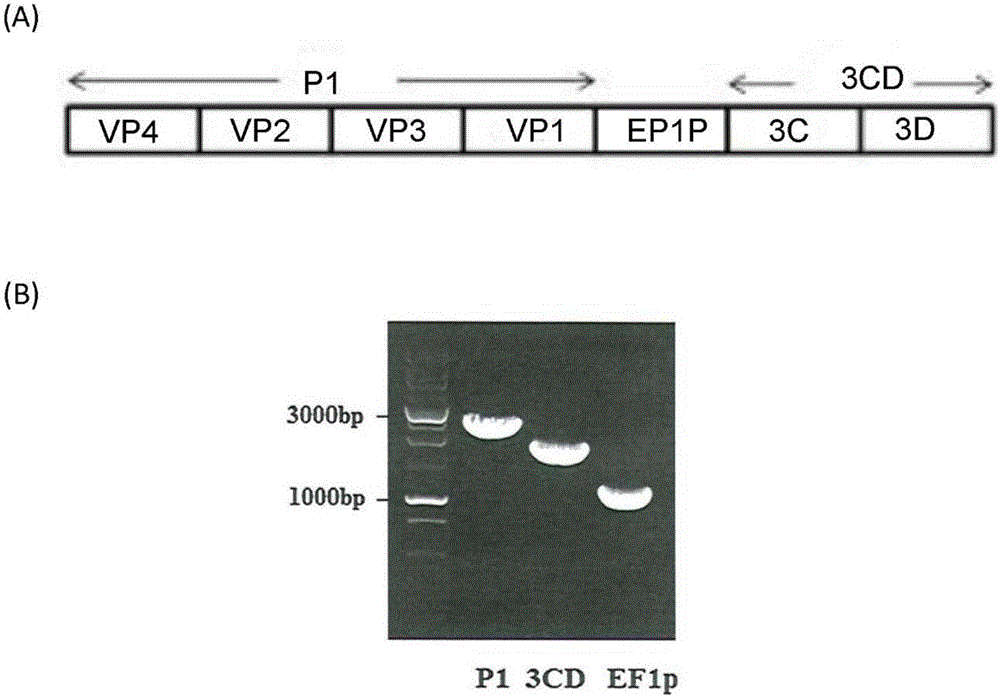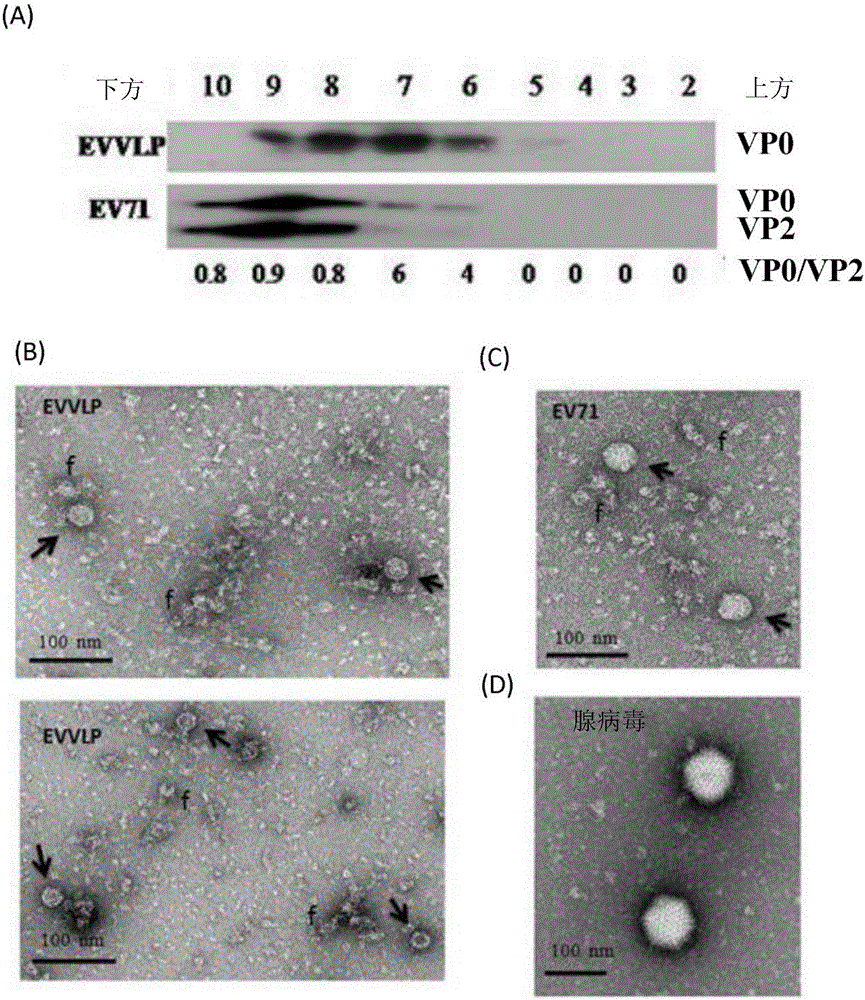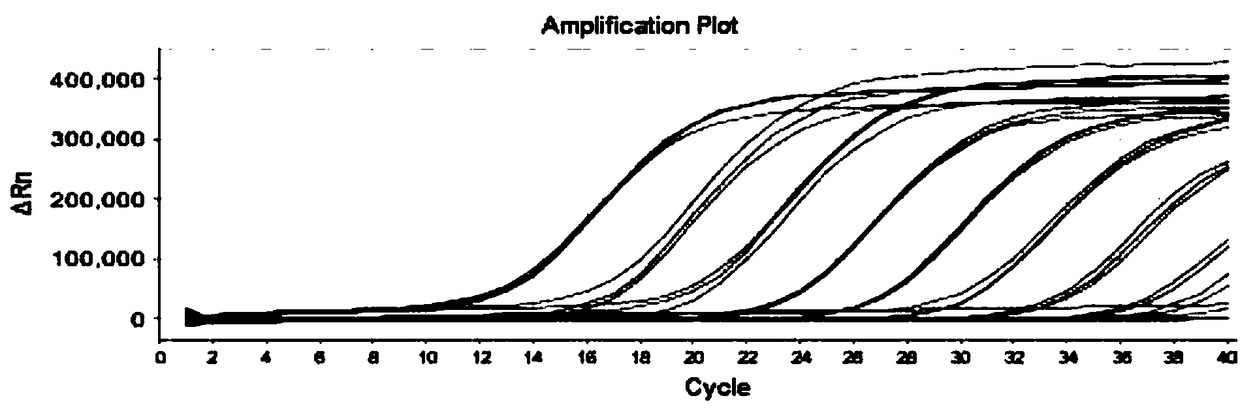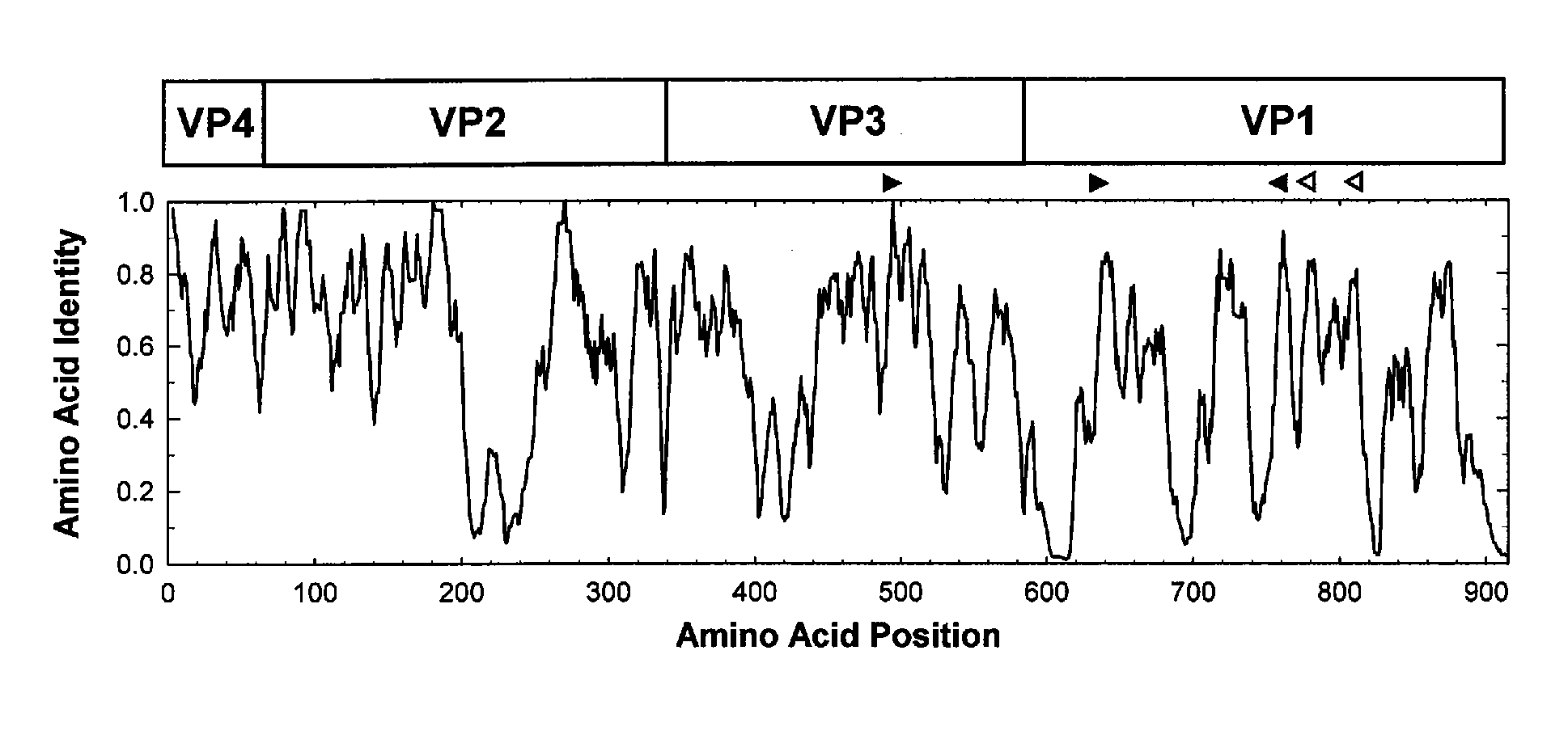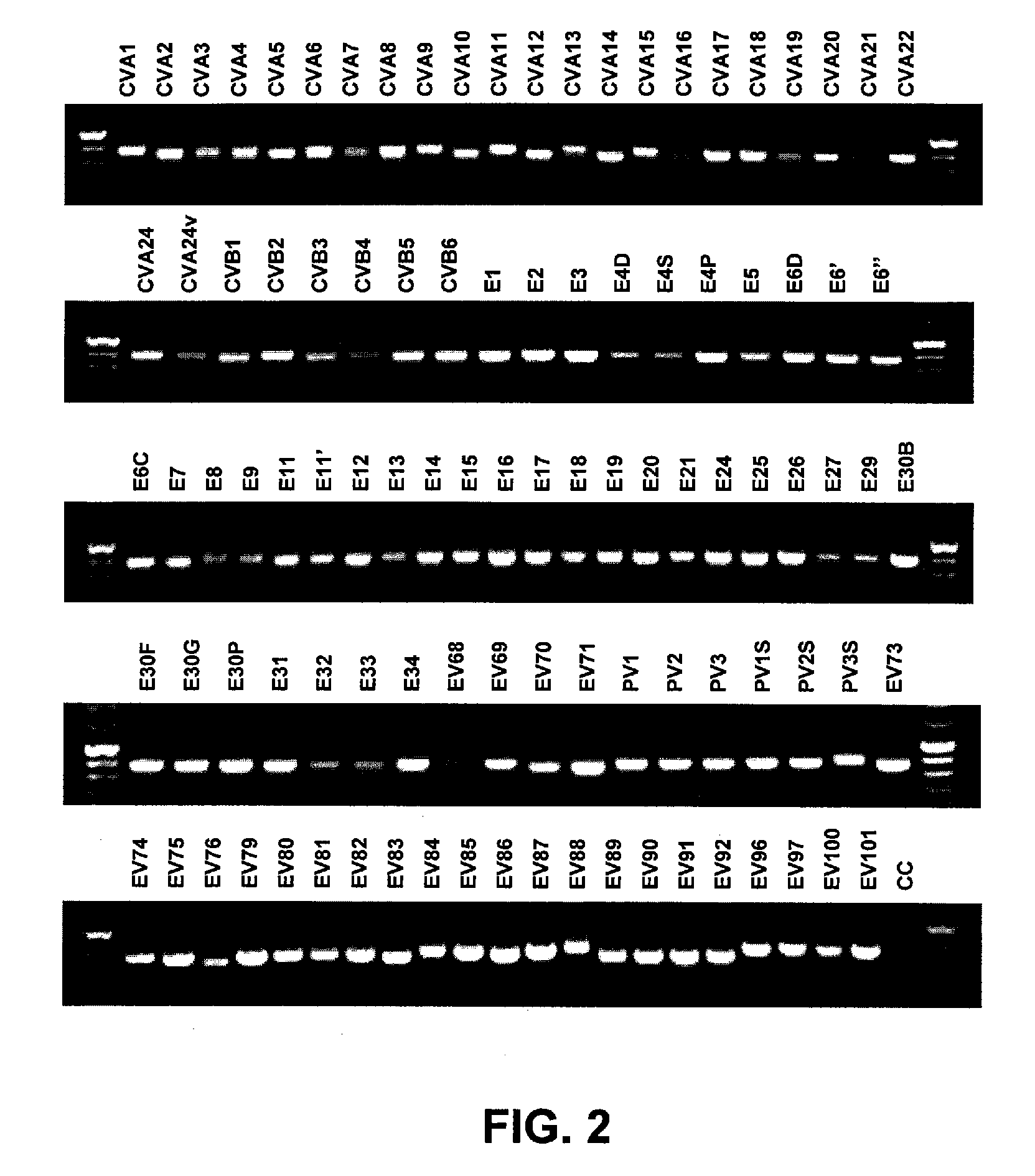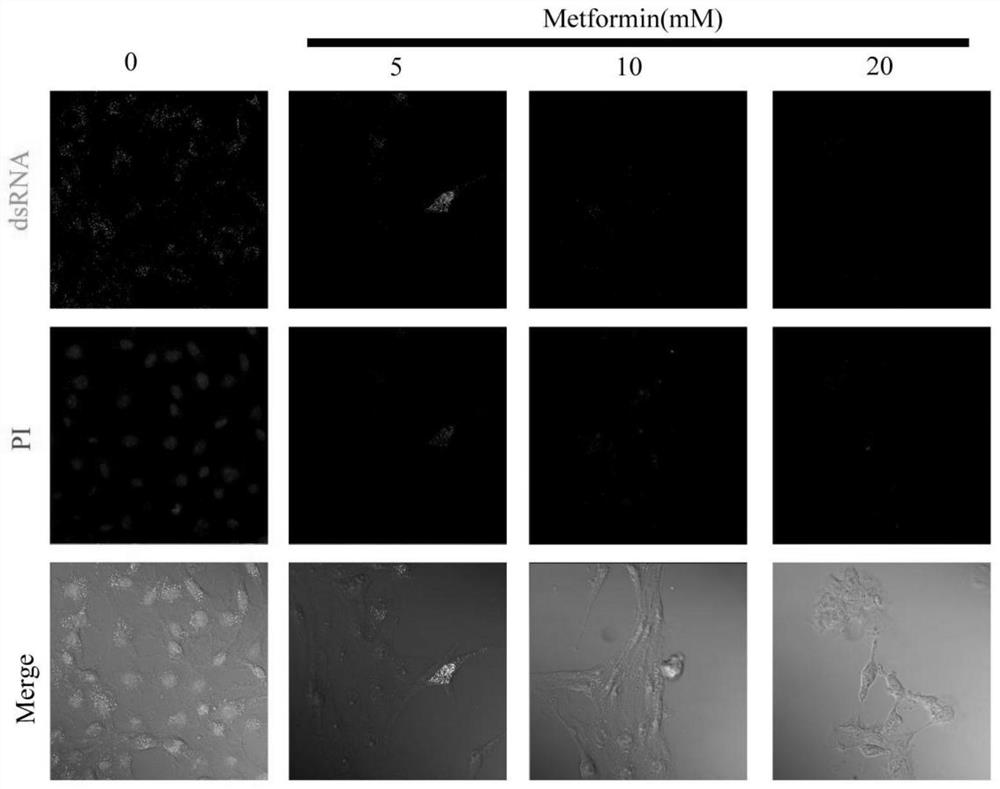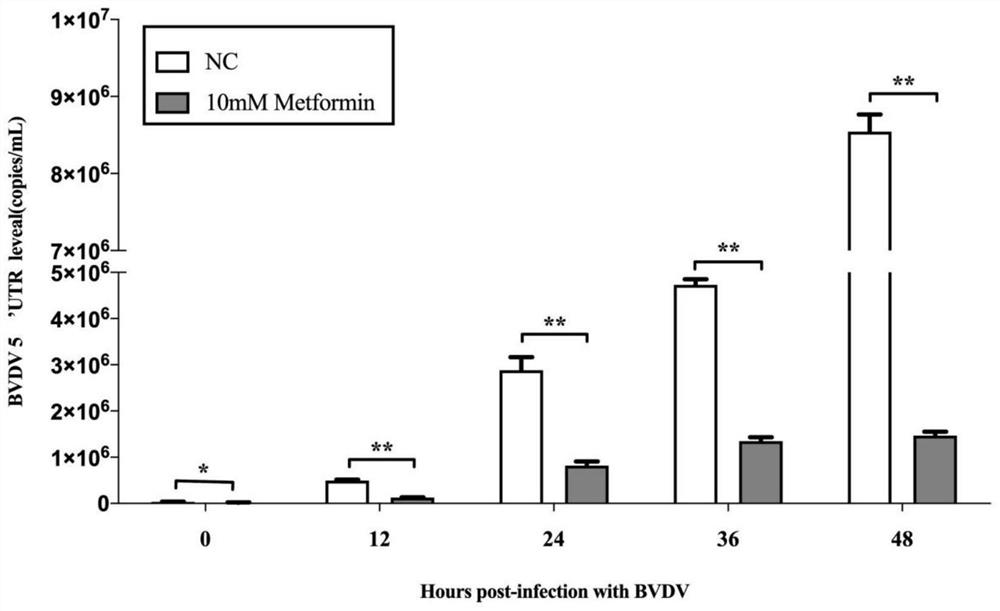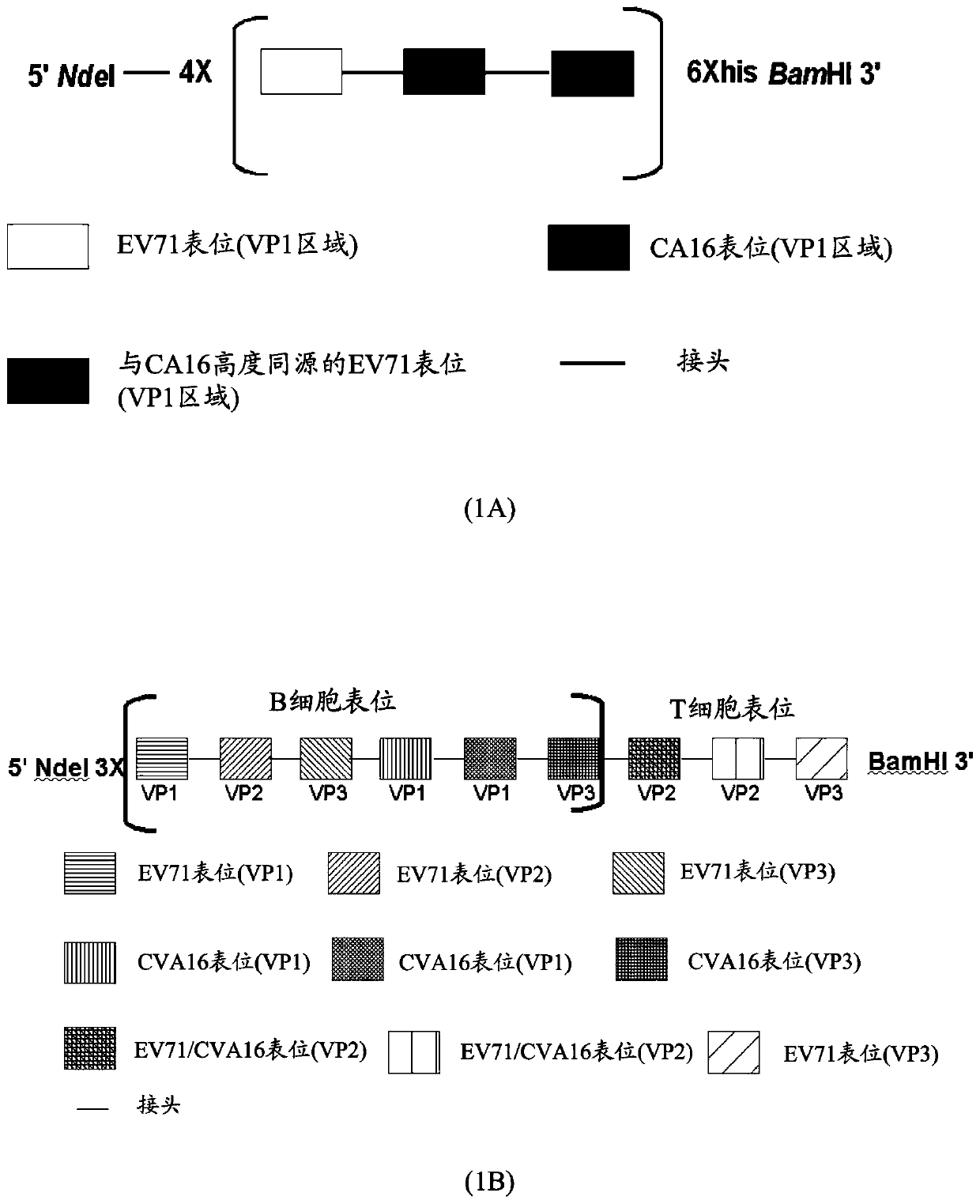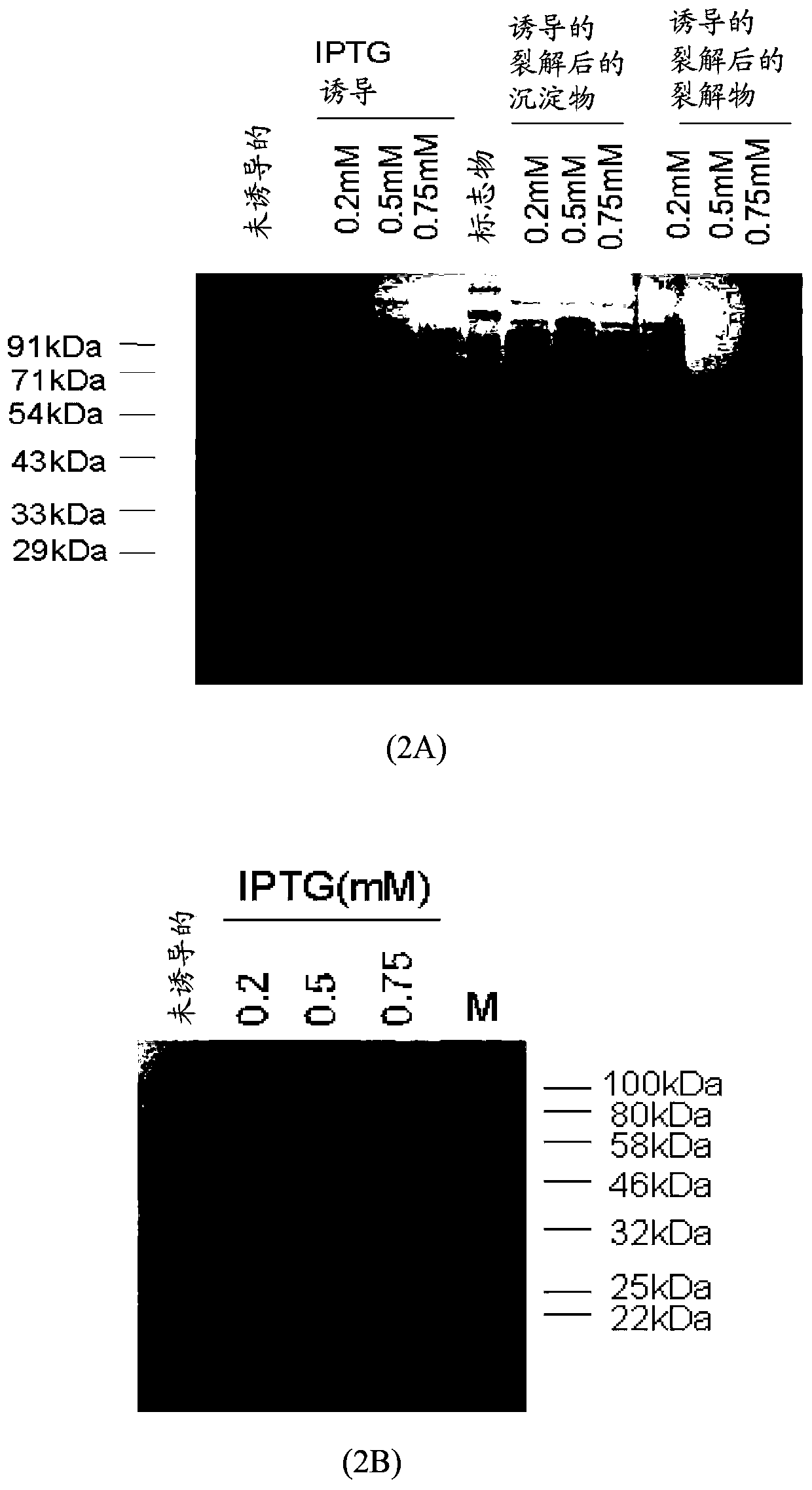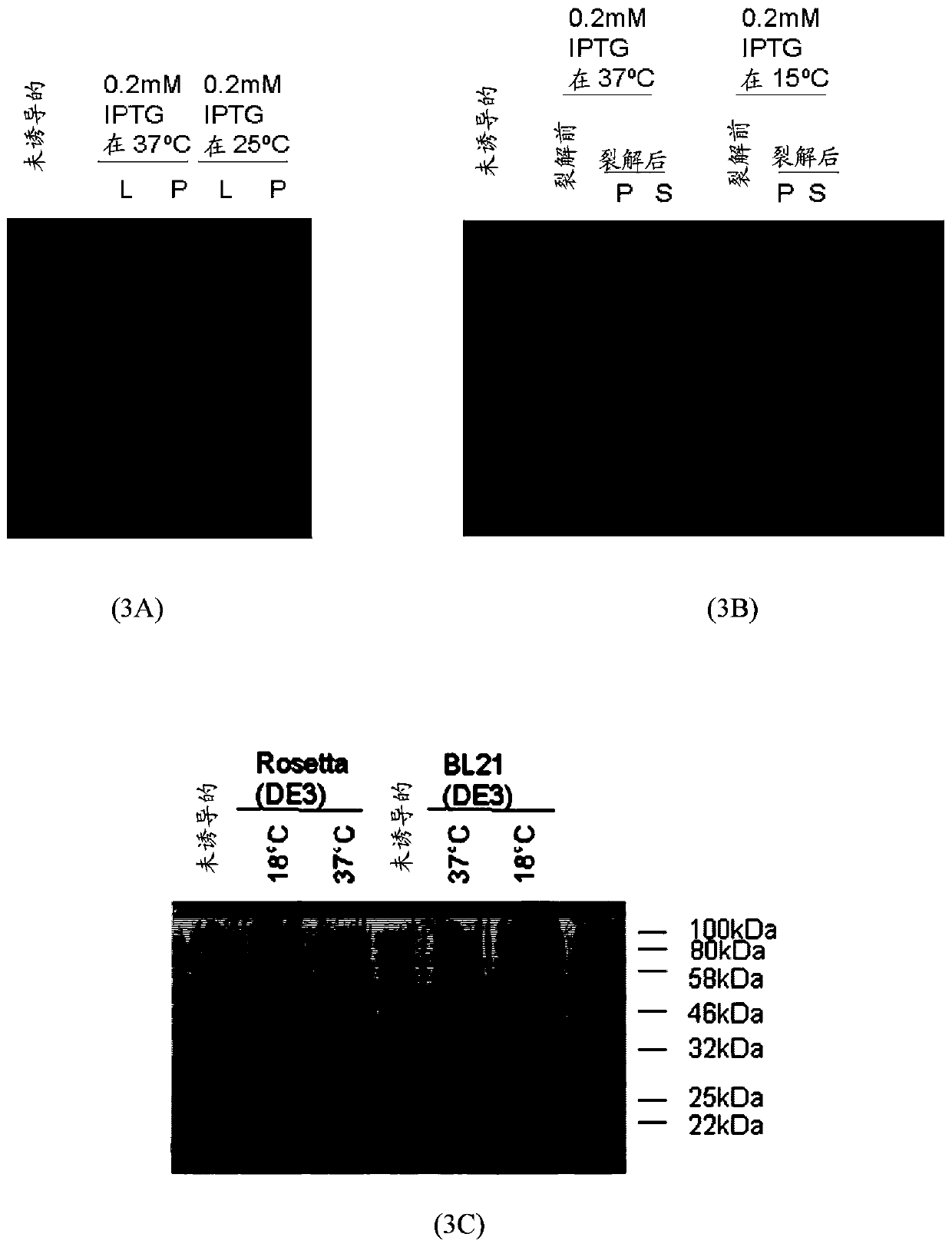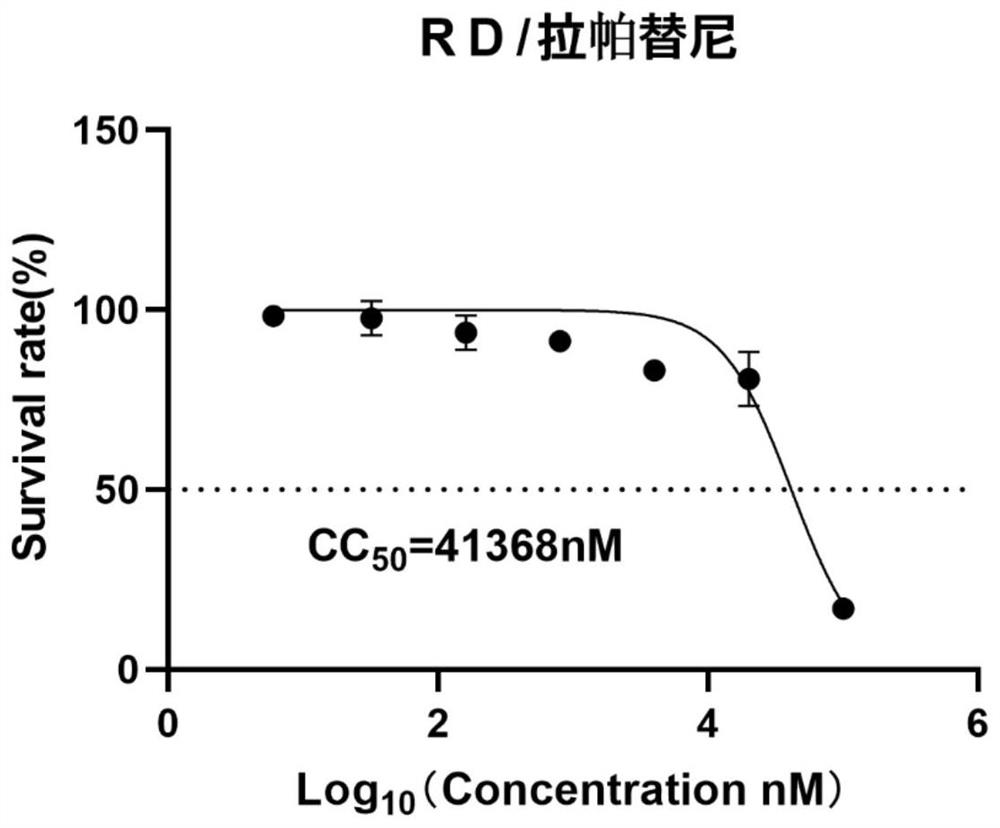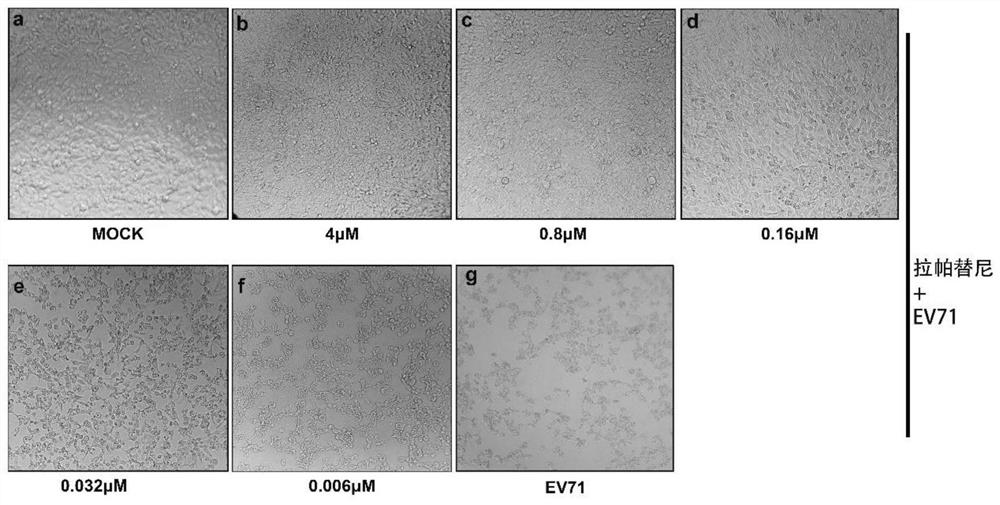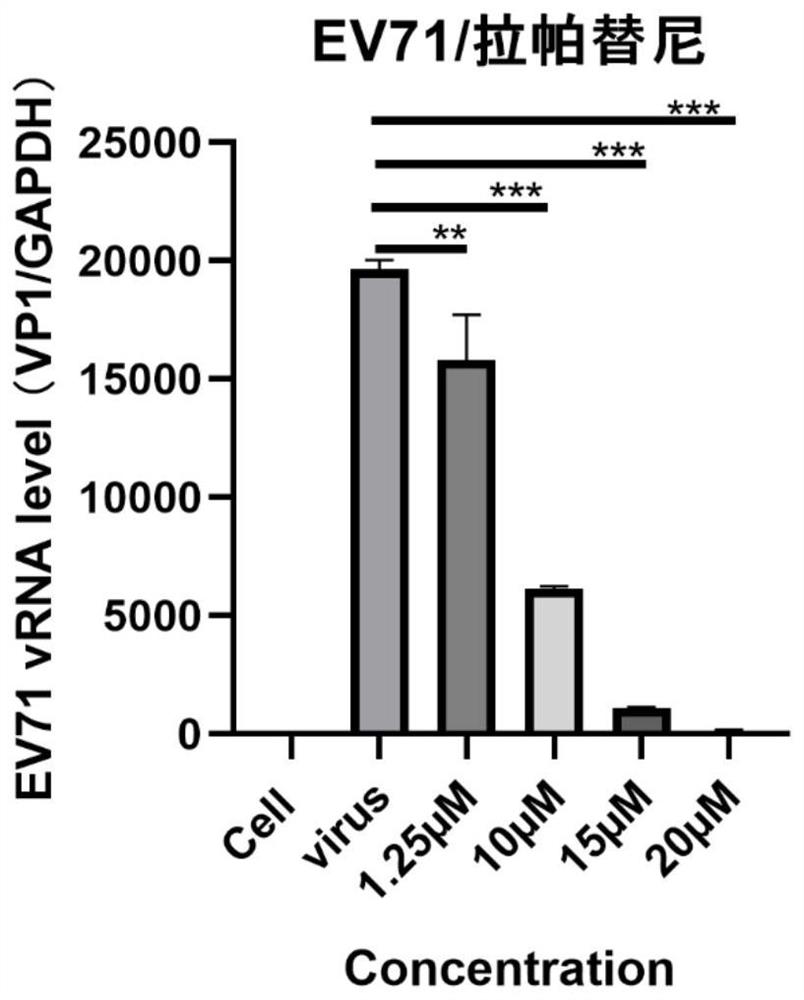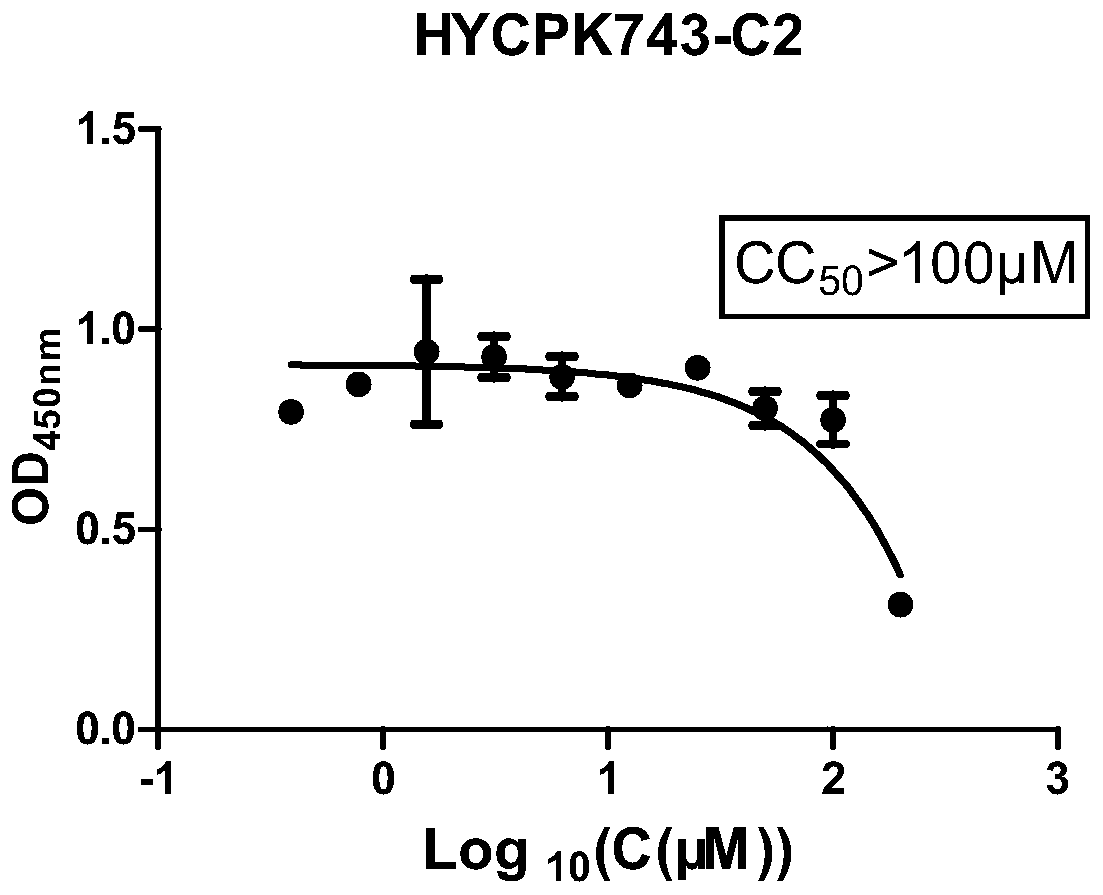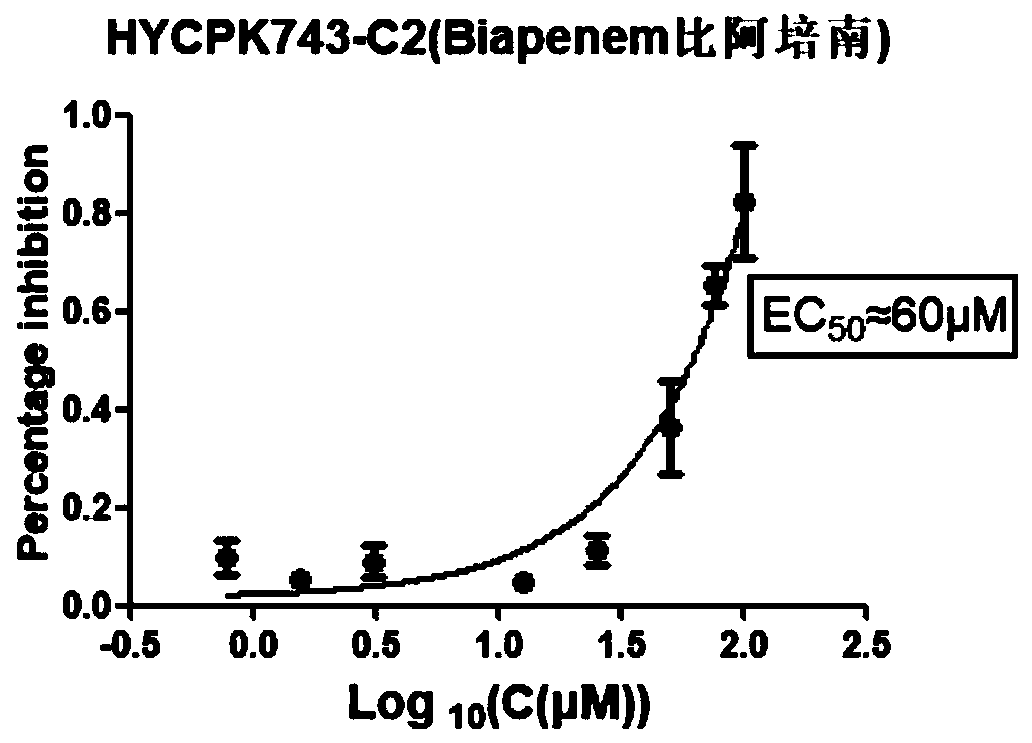Patents
Literature
Hiro is an intelligent assistant for R&D personnel, combined with Patent DNA, to facilitate innovative research.
77 results about "Enterovirus Infections" patented technology
Efficacy Topic
Property
Owner
Technical Advancement
Application Domain
Technology Topic
Technology Field Word
Patent Country/Region
Patent Type
Patent Status
Application Year
Inventor
Enterovirus Infections. Definition. Enteroviruses are so named because they reproduce initially in the gastrointestinal tract after infection occurs. Despite, this, they usually do not lead to intestinal symptoms; rather it is their spread to organs, such as the nervous system, heart, skin, and others that causes disease.
Method for rapidly detecting neutralizing antibody of virus and kit therefor
InactiveCN101644709AThe detection method is simpleFast detection methodBiological testingMonoclonal antibodyNeutralizing antibody
The invention relates to a method for rapidly detecting neutralizing antibody of enterovirus with high efficiency and a kit therefor. The method is suitable for high-throughput detection of the neutralizing antibody of the enterovirus, and is characterized by combining enzyme linked immune spot assay with a spot detecting instrument to detect cells infected by the enterovirus. The invention also discloses the usage of the method in the aspects such as neutralizing enterovirus monoclonal antibody, neutralizing titer for detecting the enterovirus monoclonal antibody, etc.
Owner:XIAMEN UNIV +1
Manufacture of hSCARB 2 transgenic mouse and application of the transgenic mouse as enterovirus infection animal model
InactiveCN103081868AAnimal reproductionMicrobiological testing/measurementHand-foot-and-mouth diseaseEnteroviral infections
The present invention concerns the manufacture of EV71 acceptor SCARB 2 transgenic mouse. The manufactured SCARB 2 transgenic mouse can be used as an animal model infected with the hand-foot-and-mouth disease, such as infected with enterovirus 71 or Coxsackies virus A16, so as to allow for estimation of enterovirus viral vaccine immune protection efficacies and application of enterovirus infection in pathological study.
Owner:NAT INST OF HEALTH REPRESENTED BY THE SEC OF THE DEPT OF HEALTH & HUMAN SERVICES NAT INST OF HEALTH
Viral particles as immunogens against enterovirus infection and production thereof
The present invention relates to viral particles as immunogens against enterovirus infection and a method of producing the same. Specifically, the present invention features that human embryo kidney 293 (HEK 293) cells are used to produce viral particles of Enterovirus A, particularly Coxsackievirus A6 (CVA6) particles or Coxsackievirus A10 (CVA10) particles or both and optionally additional viral particles of other Enterovirus A e.g. Coxsackievirus A16 (CVA16) and / or Enterovirus A71 (EV71). The yield of the viral particles in HEK 293 cells is unexpectedly high and effective to induce an immune response against enterovirus infection, especially CVA6 and CVA10. The present invention also relates to an immunogenic composition against enterovirus infection for human use comprising the viral particles as described herein and a method of preventing enterovirus infection or a disease as caused, particularly Hand-Foot-Mouth diseases (HFMD), by administering the immunogenic composition to a subject in need thereof.
Owner:NAT INST OF HEALTH REPRESENTED BY THE SEC OF THE DEPT OF HEALTH & HUMAN SERVICES NAT INST OF HEALTH +1
Fluorescent quantitative RT-PCR detection kit and detection method for enterovirus
InactiveCN101407846ANo cross reactionQuick checkMicrobiological testing/measurementFluorescence/phosphorescenceCerebrospinal fluidHand-foot-and-mouth disease
The invention provides a fluorescence quantitative RT-PCR detecting kit for an enterovirus and a detecting method thereof; and the sequences of an upstream primer and a downstream primer and a specific probe of the fluorescence quantitative RT-PCR detecting kit are as follows: the upstream primer EV(YG)F is 5'-GGCTGCGYTGGCGGCC-3', the downstream primer EV(YG)R is 5'-CCAAAGTAGT CGGTTCCGC-3' and the specific probe EV(YG)PB is 5'-CTCCGGCCCCTGAATGCGG-3'. The method has high specificity on detecting the enterovirus and does not have cross reactions with other enteroviruses such as hepatitis A, hives, rubella, parotitis, encephalitis, dengue fever, adenovirus, and the like. The detection sensitivity of the method achieves 0.1TCID50; the method can directly detect the nucleic acid of the enterovirus from the samples of ncurolymph, herpes liquid, dejecta and the like of suspected patients; only about 3h is needed from extracting the nucleic acid of the enterovirus to finishing the detection; and the detecting kit and the detecting method are suitable for the lab early diagnosis of sudden epidemic caused by the infection of the enteroviruses such as the hand-foot-and-mouth disease and the like.
Owner:ZHEJIANG CENT FOR DISEASE CONTROL & PREVENTION
Application of scullcapflavone in preparing medicament for treating enterovirus infection
The invention discloses new application of scullcapflavone in preparing a medicament for treating enterovirus infection, in particular new application of scullcapflavone in preparing a medicament for treating or preventing a hand-foot-and-mouth disease caused by enterovirus infection. The scullcapflavone comprises an extract of baicalein, baicalin or scutellaria baicalensis general flavone; and the enterovirus indicates a coxsackie virus A group, a coxsackie virus B group, echovirus or enterovirus EV71 which causes the hand-foot-and-mouth disease. The scullcapflavone as an active substance is mixed with a pharmaceutically allowable excipient and made into a preparation which can be accepted by a patient and can be used for treating and preventing the hand-foot-and-mouth disease by injection administration, mucosa administration, oral administration or inhalation and has obvious treating effect and high safety.
Owner:BEIJING WEHAND BIO PHARMA CO LTD
Application of polypeptide in preparing medicine for treating enterovirus infection
ActiveCN106668832AImprove water retentionImprove securityPeptide/protein ingredientsDigestive systemActive componentViral infection
The invention discloses application of polypeptide in preparing a medicine for treating enterovirus infection, belongs to the field of infectious disease prevention and treatment, further provides a medicinal composition for treating enterovirus infection, and in addition, provides a polypeptide preparation prepared from pharmaceutically acceptable auxiliary materials or auxiliary components. The medicinal composition comprises an effective dosage of the polypeptide as an active component. The polypeptide disclosed by the invention can be used for treating enterovirus infection, particularly for treating and preventing hand-foot-mouth diseases and herpetic herpangina, and is remarkable in effect and good in security.
Owner:ZHEJIANG ECHON BIOMEDICAL CO LTD
Immunofluorescence reagent for detecting E-type enterovirus and detection kit thereof
InactiveCN105548550ARapid diagnosisShort detection timeBiological material analysisImmunofluorescenceFluorescence
The invention discloses an immunofluorescence reagent for detecting an E-type enterovirus and a detection kit thereof. A direct immunofluorescence detection method set up by applying the immunofluorescence reagent for detecting the E-type enterovirus can be used for clinically fast diagnosing E-type enterovirus infection and used for positioning and authenticating an E-type enterovirus antigen in tissue. The time for direct immunofluorescence detection is short, and a result can be reported within 40 min; specificity is high, and the immunofluorescence reagent only reacts with the E-type enterovirus; the immunofluorescence reagent is high in repeatability and accuracy, the coincidence rate between results of immunofluorescence reagent and results of an indirect immunofluorescence method is 90% or more, and the immunofluorescence reagent can be used for fast diagnosing E-type enterovirus infection.
Owner:JILIN UNIV
Kit for detecting human enteric viruses by real-time fluorescent quantitative PCR
ActiveCN101638693AHigh sensitivityEffective monitoringMicrobiological testing/measurementAgainst vector-borne diseasesThroat swabFluorescence
The invention relates to a real-time fluorescent PCR detection kit, in particular to a kit for diagnosing human enteric virus infection early and quickly by real-time fluorescent quantitative polymerase chain reaction technique. The kit has quite high sensitivity and specificity, and can realize quick and early diagnosis and quantitative analysis of human enteric viruses in samples of feces, serum, throat swab, cerebrospinal fluid, herpes fluid and the like.
Owner:广州安基因股份有限公司
Detection and identification of enteroviruses by semi-nested amplification of the enterovirus VP1 protein
InactiveUS7247457B2Sugar derivativesMicrobiological testing/measurementViral infectionEnterovirus Infections
Disclosed are methods of using enterovirus-specific primers for the detection and identification of enterovirus infection. Also provided are isolated nucleic acid molecules and kits useful for detection and diagnostic testing of enterovirus infection in a subject.
Owner:HEALTH & HUMAN SERVICES CENTS FOR DISEASE CONTROL & PREVENTION THE GOVERNMENT OF THE US SEC THE DEPT OF
Kit for detecting enterovirus and application of kit
ActiveCN105112407AQuick checkAccurate detectionMicrobiological testing/measurementDNA/RNA fragmentationPharmacyFluorescence
The invention discloses a kit for detecting enterovirus and application of the kit. The kit comprises a primer pair group for detecting the enterovirus; the primer pair group consists of three primer pairs; and sequences of the primer pairs are sequences 1-6 in a sequence list. The kit supports high through-put, and can detect enterovirus infection quickly and accurately; when the kit is used clinically, detection results of three kinds of enterovirus indexes can be obtained within 1 hour, the speed is higher than the speed in the existing frequently used real-time fluorescence quantitative PCR (polymerase chain reaction) method, and the kit has important significance in quick assistant guide treatment and pharmacy. Moreover, multi-index detection can also be used for regional epidemiological research and epidemic surveillance so as to research epidemic conditions of enterovirus infection in China.
Owner:CAPITALBIO CORP +2
G type enterovirus direct immunofluorescent reagent and kit
ActiveCN105974119AStrong specificityHigh sensitivityDisease diagnosisBiological testingImmunofluorescenceFluorescence
The invention discloses a G type enterovirus detecting immunofluorescent reagent and a G type enterovirus immunofluorescent detecting kit. The immunofluorescent reagent is a VP1 monoclonal antibody capable of being labeled with a fluorescent dye, the VP1 monoclonal antibody is obtained by utilizing VP1 protein of the G type enterovirus and adopting a hybridoma monoclonal antibody preparation technology, and the amino acid sequence of the VP1 protein is shown as the sequence table SEQ ID NO.2. The immunofluorescent reagent and the detecting kit can be used for rapid diagnosis of G type enterovirus infection in clinic, and can also be used for localization and identification of a G type enterovirus pathogen in tissue; the direct immunofluorescent detecting time is short, and report results can be generated in 40 min; the specificity is strong, and reaction can only be conducted with the G type enterovirus; the repeatability is good, the accuracy is high, the coincidence rate to an indirect immunofluorescence method can reach 90% or above, and the immunofluorescent reagent and the detecting kit can be used for rapid diagnosis of the G type enterovirus infection.
Owner:JILIN UNIV
Detection and identification of enteroviruses
InactiveUS20060240407A1Sugar derivativesMicrobiological testing/measurementEnterovirus RNADiagnostic Test Result
Disclosed herein are methods of using enterovirus-specific primers for the detection and identification of enterovirus infection. Also provided herein are isolated nucleic acid molecules and kits useful for detection and diagnostic testing of enterovirus infection in a subject.
Owner:HEALTH & HUMAN SERVICES CENTS FOR DISEASE CONTROL & PREVENTION THE GOVERNMENT OF THE US SEC THE DEPT OF
Universal primer, probe and test kit for intestinal virus nucleic acid testing
PendingCN111534637AStrong degeneracyImprove the detection rateMicrobiological testing/measurementDNA/RNA fragmentationDiseaseNucleic acid detection
The invention relates to the technical field of biological detection, in particular to a universal primer, a probe and a test kit for intestinal virus nucleic acid testing. The primer and the fluorescent probe are designed according to a new mutation site of an intestinal virus 5'UTR sequence, the primer and the probe for the universal nucleic acid testing of the intestinal virus provided by the invention are strong in degeneracy, and a degeneracy base is introduced at the 8-base position of the 3' end of an upstream prime; and a degenerate base is introduced at the 16-base position of the 5'end of a downstream primer according to T base mutation. RRT-PCR detection is carried out by adopting the primer and the probe disclosed by the invention, so that the primer and the probe have relatively high detection rate and high sensitivity on the novel intestinal virus generated by mutation of the intestinal virus 5'UTR sequence; and a scientific basis is provided for diagnosis of related diseases of intestinal virus infection.
Owner:江苏派森杰生物科技有限公司 +1
siRNA having antiviral activity against nonpolio enterovirus
The present invention relates to an siRNA (small interfering RNA) having antiviral activity against nonpolio enteroviruses, and a pharmaceutical composition comprising same as an active ingredient for preventing and treating diseases caused by nonpolio enterovirus infection.
Owner:UNIV OF ULSAN FOUND FOR IND COOPERATION
Method and Materials for Use in Diagnosing Viral Myocarditis
InactiveUS20070292345A1Improvement in diagnostic techniqueSensitive highGeneral/multifunctional contrast agentsMicrobiological testing/measurementProteinase activityEnteroviral infections
The invention consists of assay methods, assay kits and antibodies for detecting the polypeptide fragments of dystrophin protein cleavage by enteroviral protease 2A as a result of an enteroviral infection in the heart. The presence of dystrophin cleavage products in the myocytes or blood of a subject is diagnostic for enteroviral infection and myocarditis resulting therefrom.
Owner:RGT UNIV OF CALIFORNIA
Composition for treating enterovirus infection and drug combination method
ActiveCN105664166ARevealing synergistic inhibitionLow onsetSsRNA viruses positive-senseMicroorganism based processesCytotoxicityBULK ACTIVE INGREDIENT
The invention provides composition for treating enterovirus infection and a drug combination method and particularly provides composition for inhibiting enteroviruses. The composition comprises a first active ingredient and a second active ingredient, wherein the first active ingredient is a 3D protein inhibitor of enterovirueses such as EV71, and the second active ingredient is a capsid protein inhibitor of enteroviruses such as EV71. Experimental results show that the pharmaceutical composition has a remarkable synergistic function, and cytotoxicity of the composition in detected combination concentration is not enhanced.
Owner:INST PASTEUR OF SHANGHAI CHINESE ACADEMY OF SCI
Cholesterol hydroxylase CH25H and application thereof
The invention provides application of cholesterol-25-hydroxylase, nucleotide sequence for encoding cholesterol-25-hydroxylase or a matter for inducing the cholesterol-25-hydroxylase expression in preparing a drug for preventing and / or treating diseases and / or symptoms caused by enterovirus infection, a dosing method and a preparation suitable for the drug, other active ingredients contained in the drug and a combined medicine of the drug and other drugs. The invention also provides a method for achieving a non-therapeutic purpose for restraining enterovirus in the in vitro cells by utilizing a cholesterol-25-hydroxylase expression vector and the application of at least one of the cholesterol-25-hydroxylase, the nucleotide sequence for encoding cholesterol-25-hydroxylase or the matter for inducing the cholesterol-25-hydroxylase expression in achievement of the non-therapeutic purpose for restraining enterovirus in the in vitro cells.
Owner:INST OF PATHOGEN BIOLOGY CHINESE ACADEMY OF MEDICAL SCI
Application of macromolecular protein in anti-RNA virus disinfectant
The invention provides an application of macromolecular protein in an anti-RNA virus disinfectant. The macromolecular protein is one or more of natural immune polypeptide and protein secreted by bacteria, fungi, animals or plants in the biological field, the disinfectant acts on the body surface environment, the in-vitro environment or the oral and nasal cavity environment, and the macromolecularprotein is human RNase 2 and / or RNase 3. The RNase 2 and RNase 3 in the disinfectant are very stable in structure and lasting in activity, can inhibit viruses in vitro and directly destroy virus outermembranes, and meanwhile can degrade virus genomes, and can reduce the infection virus load in the in-vitro environment; compared with the existing small molecule disinfectant, the disinfectant has the advantages of long action time, high efficiency, no irritation to human bodies, environmental protection, cyclic effect exertion and the like, and is expected to have great application prospects inthe aspect of prevention of respiratory tract and gastrointestinal tract RNA virus infection of novel coronavirus, influenza virus and the like.
Owner:武汉愔紫生物科技有限公司
Preparation used for restraining enterovirus infection
InactiveCN105497058AAvoid infectionLow cytotoxicityOrganic active ingredientsDigestive systemAstragalus polysaccharideCytotoxicity
The invention discloses a preparation used for restraining enterovirus infection. The preparation is used for preparing products used for restraining enterovirus infection, and used for restraining enterovirus infection. The preparation is mainly prepared by mixing epigallocatechin gallate, tannin and astragalus polysaccharides. The mass ratio of epigallocatechin gallate to tannin to astragalus polysaccharides is (0.5-1.0):(0.5-1.0):(0.5-1.5). Cytotoxicity of the complex formula preparation is not higher than that of a control sample ribavirin obtaining security permission, and the preparation is safe. With the safe use concentration, the preparation is used preventively to restrain enterovirus infection effectively, and has commercial value of being further developed into an enterovirus infection inhibitor.
Owner:INST OF PLA FOR DISEASE CONTROL & PREVENTION
Adenoviral vector-based vaccine against enterovirus infection
ActiveCN106794239AThe scope of the patent application is clearSsRNA viruses positive-sensePeptide/protein ingredientsD'Aguilar virusEnteroviral infections
The present invention relates to a recombinant adenoviral vector for generating immunity against enterovirus infection. In one embodiment, the recombinant adenoviral vector of the invention comprises an expression cassette encoding a PI protein and a 3 CD protease of an enterovirus. In another embodiment, the recombinant adenoviral vector of the invention comprises an expression cassette encoding a 3C protease or a 3CD protease of an enterovirus. The present invention also relates to a vaccine composition comprising the recombinant adenoviral vector as described. A method of inducing an immune response in a subject against enterovirus infection using the recombinant adenoviral vector and the vaccine composition is provided. Further provided is a method for producing virus like particles of an enterovirus by expressing the adenoviral vector as described herein in mammalian cells.
Owner:NAT INST OF HEALTH REPRESENTED BY THE SEC OF THE DEPT OF HEALTH & HUMAN SERVICES NAT INST OF HEALTH
Medicinal composition for treating diseases caused by enterovirus infections
ActiveCN102309758AReduce dosageReduce the risk of side effectsPeptide/protein ingredientsDigestive systemHand-foot-and-mouth diseaseAntiviral drug
The invention relates to a medicinal composition, which particularly consists of a first agent of an antiviral medicament and a second agent of an immunomodulator, wherein the first agent, which is prepared by blocking virus messenger ribose nucleic acid (mRNA) translation and inhibiting the synthesis of virus nucleic acid in a cell. The medicinal composition can be used for treating organic pathological changes caused by enterovirus infections, such as a hand, foot and mouth disease.
Owner:BEIJING KAWIN TECH SHARE HLDG
Primer probes and identification method for enterovirus typing identification
ActiveCN108424977AEasy to detectRealize typing identificationMicrobiological testing/measurementMicroorganism based processesFluorescenceSerotype
The invention discloses primer probes and an identification method for enterovirus typing identification. The method designs three groups of primer probes shown as SEQ ID No.1-SEQ ID No.9 directed atall serotypes of VP1 genes in group A, group B and group C of enteroviruses, and the VP1 gene conserved regions of coxsackie virus group A type 16 and enterovirus type 71, selects different fluorescent markers for the three probes, achieves identification of enteroviruses and two serotype enteroviruses in one tube reaction system simultaneously, and simplifies the enterovirus prevalent serotype laboratory detection procedure. At the same time, the invention discloses treatment of to-be-detected samples, a fluorescence RT-PCR reaction system and reaction conditions. The primer probes and the identification method provided by the invention can realize detection of pandemic enteroviruses in the Chinese mainland and two common serotypes, are easy to operate and convenient to apply, thus providing a feasible technical method for study of enterovirus infection etiology and clinical epidemiology.
Owner:SHANGHAI BIOGERM MEDICAL TECH CO LTD
Detection and identification of enteroviruses
InactiveUS20070287148A1Sugar derivativesMicrobiological testing/measurementViral infectionEnterovirus Infections
Disclosed herein are methods of using enterovirus-specific primers for the detection and identification of enterovirus infection. Also provided herein are isolated nucleic acid molecules and kits useful for detection and diagnostic testing of enterovirus infection in a subject.
Owner:UNITED STATES OF AMERICA
Application of Metformin in inhibiting bovine viral diarrhea virus infection
ActiveCN113018283AInhibition of replicationLower titerOrganic active ingredientsDigestive systemBALB/cBovine enterovirus
The invention provides application of Metformin in preparation of a medicine for preventing and treating bovine enterovirus infection. The compound Metformin provided by the invention can effectively inhibit the proliferation of bovine enterovirus, experiments prove that the accumulation of mRNA and dsRNA of BVDV can be obviously inhibited by using Metformin to pretreat MDBK cells, the formation of virus particles can be obviously inhibited, the CPE phenomenon is obviously weakened, the final 10mM use effect of Metformin on the MDBK cells is better, BVDV challenge is performed after the Metformin is used for intragastric administration of a BALB / c mouse, the Metformin can obviously reduce the content of mRNA of the BVDV in visceral tissues of the mouse, through observation of pathological sections, the Metformin can effectively relieve tissue lesions caused by BVDV infection, which indicates that the Metformin inhibits replication of BVDV in cells and in mice, and the Metformin has high efficiency in the aspect of virus resistance. The Metformin has the prospect of being developed into the medicine for preventing and / or treating bovine enterovirus infection, a new medicine application is developed for the Metformin, an experimental foundation is laid for developing the efficient and specific anti-bovine enterovirus medicine, and a new view is provided for developing the efficient and specific anti-bovine enterovirus medicine.
Owner:XINJIANG AGRI UNIV
A synthetic polypeptide epitope based vaccine composition
ActiveCN111050795ASsRNA viruses positive-senseViral antigen ingredientsRecombinant vaccinesHand foot mouth disease
Conserved epitopes selected from EV71 and CVA16, the two major causative agents of Hand Foot and Mouth Disease has been used to develop sub-unit bivalent vaccine antigen construct. The said vaccine described in this invention is capable to provide cross-protection to diverse EV71 and CVA16 infection causing strains. Further disclosed are the expression of the multi- epitope vaccine antigen codinggene and the purification process involved thereof. This present invention also discloses vaccine formulations against Hand Foot and Mouth Disease and other enterovirus infections comprising the recombinant vaccine antigen construct of the present invention.
Owner:BHARAT BIOTECH INTERNATIONAL
Construction method and application of recombinant enterovirus phenotype hybrid system containing cytokine adjuvant
InactiveCN106754758APractical and wide application valueSsRNA viruses positive-senseViral antigen ingredientsEnterovirusCytopathic effect
The invention provides a construction method of a recombinant enterovirus phenotype hybrid system containing a cytokine adjuvant. The construction method comprises the following steps: firstly respectively constructing a VP1 recombinant cell line and a recombinant attenuated enterovirus strain loaded with cytokine genes; then performing infection amplification on the recombinant attenuated enterovirus strain in the VP1 recombinant cell line; the VP1 recombinant cell line is one of or two of VP1 cell lines for expressing an enterovirus type 71 and a coxsackie virus A group type 16; the recombinant attenuated enterovirus strain loaded with the cytokine genes selects from a coxsackie virus group B type 3, the enterovirus type 71 or a poliovirus type I; a cytokine selects from cholera toxin or interferon gamma; recombinant attenuated enteric viruses loaded with the cytokine genes infect the VP1 recombinant cell line, and after a cytopathic effect, progeny viruses are obtained and can activate host immunity to generate immune protection aiming at a variety of intestinal viruses; therefore, the construction method has application values.
Owner:SHANTOU UNIV MEDICAL COLLEGE
Application of lapatinib and/or medicinal derivatives thereof in preparation of anti-enterovirus drugs
ActiveCN113827596AInhibition of lesion effectImprove survival rateOrganic active ingredientsAntiviralsCytopathic effectNortriptyline Hydrochloride
The invention provides application of lapatinib and / or medicinal derivatives thereof in preparation of anti-enterovirus drugs. According to the application, it is proved that the lapatinib has relatively high antiviral activity on enteroviruses such as EV71 and coxsackie virus and can be used for remarkably inhibiting a cytopathic effect (CPE) generated by the enteroviruses on host cells RD, and the cell survival rate is enhanced; and the nortriptyline hydrochloride can be used for inhibiting replication of the enteroviruses, showing a relatively high antiviral effect at a cellular level, and has an obvious technical effect. Results of the invention show that the compound lapatinib has potentials to prepare specific therapeutic drugs for resisting enterovirus infection, and has relatively good clinical application prospects.
Owner:武汉市金银潭医院
Application of biapenem in preparation of medicine for preventing and treating bovine enterovirus infection
ActiveCN110812357APrevent proliferationLow toxicityOrganic active ingredientsAntiviralsBovine enterovirusChemical compound
The invention provides an application of biapenem in preparation of a medicine for preventing and treating bovine enterovirus infection. The compound biapenem can effectively inhibit proliferation ofbovine enterovirus and has low toxicity to cells, and experiments prove that the median toxicity concentration (CC50) of biapenem to MDBK cells is greater than 100 [mu]M, and the median effective concentration (EC50) of biapenem to bovine enterovirus is 60 [mu]M; the treatment index of biapenem to bovine enterovirus is greater than 1.67, which indicates that biapenem has a prospect of being developed into a drug for preventing and / or treating bovine enterovirus infection, opens up the new drug application for biapenem, lays an experimental foundation for developing efficient and specific anti-BEV drugs, and provides a new visual field.
Owner:DAIRY CATTLE RES CENT SHANDONG ACADEMY OF AGRI SCI +1
Broad-spectrum anti-enterovirus protein drug and application thereof
PendingCN111053892AHas inhibitory activityEasy to operatePeptide/protein ingredientsAntiviralsProteinEnterovirus 68
The invention relates to a broad-spectrum anti-enterovirus protein drug and application thereof, and discloses a method for inhibiting growth of enteroviruses and preventing or controlling cells infected with enteroviruses in vitro by acid anhydride modified protein or a composition containing the acid anhydride modified protein. The invention also discloses a biological agent for preventing and treating various enterovirus infections, wherein the biological agent is protein treated by acid anhydride. Specifically, the anhydridized protein is anhydridized human serum albumin and bovine beta lactoglobulin. The proteins can effectively inhibit recent massive outbreak of enterovirus 68 type, enterovirus 71 type and coxsackie virus 16 type infected cells. The inhibitor disclosed by the invention has the advantages of broad-spectrum inhibition of enterovirus invading cells, prevention of virus diffusion, stability, low cost and the like.
Owner:SHANXI JINBO BIO PHARMA CO LTD +1
Features
- R&D
- Intellectual Property
- Life Sciences
- Materials
- Tech Scout
Why Patsnap Eureka
- Unparalleled Data Quality
- Higher Quality Content
- 60% Fewer Hallucinations
Social media
Patsnap Eureka Blog
Learn More Browse by: Latest US Patents, China's latest patents, Technical Efficacy Thesaurus, Application Domain, Technology Topic, Popular Technical Reports.
© 2025 PatSnap. All rights reserved.Legal|Privacy policy|Modern Slavery Act Transparency Statement|Sitemap|About US| Contact US: help@patsnap.com



